The 7 best laptop for engineering students in 2026 across all branches of engineering
Master your course with best engineering student laptops
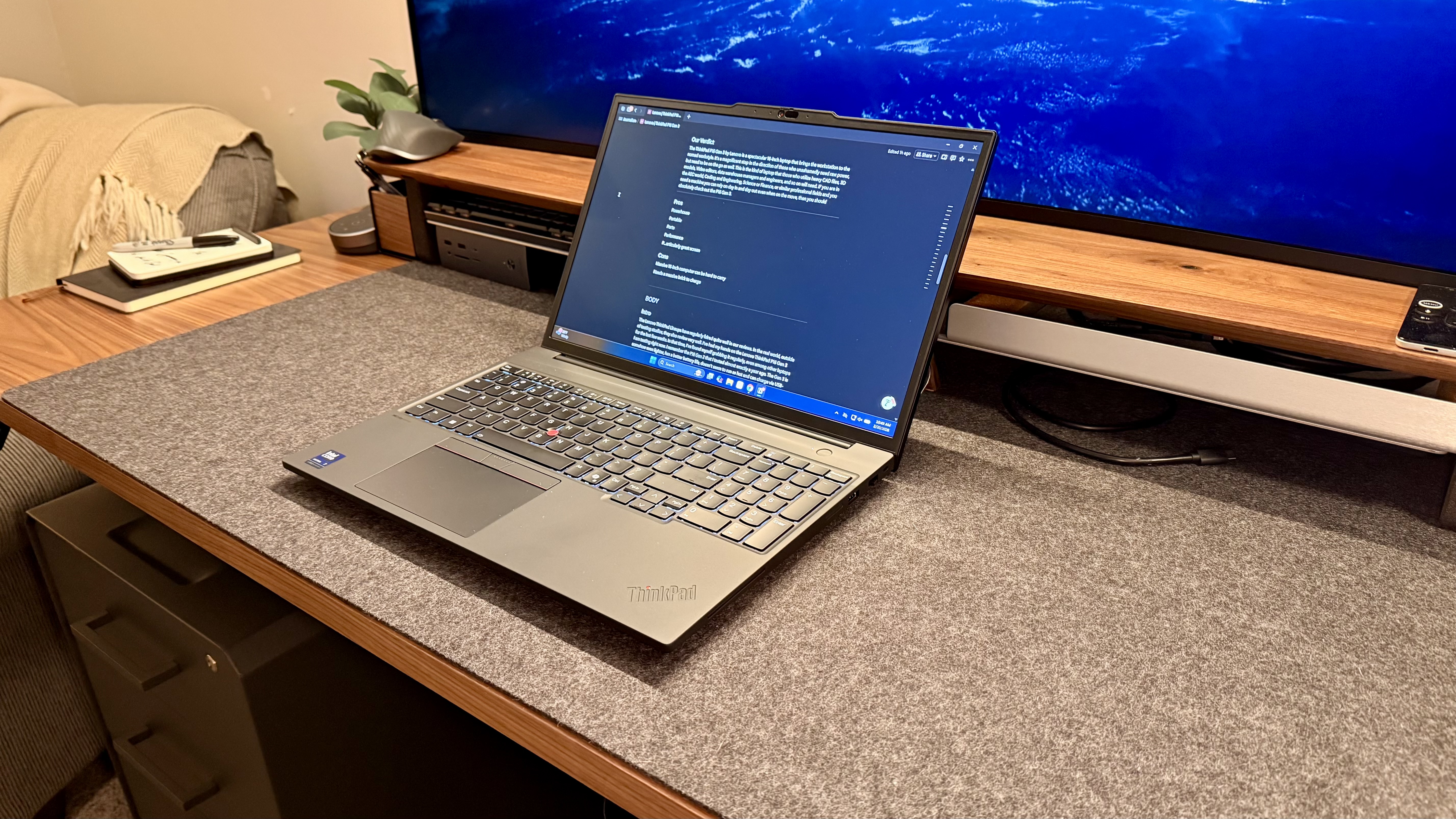
Sign up for breaking news, reviews, opinion, top tech deals, and more.
You are now subscribed
Your newsletter sign-up was successful
My team and I put the best laptops for engineering students to the test. These are our 7 top-performing laptops and mobile workstations powerful enough to breeze through CAD workflows, large-scale coding, running local AI, or just writing up reports and engineering coursework.
The Lenovo ThinkPad P16 Gen 3 is my top pick for almost every branch of engineering. This performance-led workstation laptop scored full marks after our review, where we ran a series of CAD and coding tests, database management, and more. That iconic ThinkPad is just as comfortable to type on all-day, and somehow, even as a 16-inch beast, it's lighter and more portable than the previous generation.
You can read about our experience in the full review below, and check out alternative engineering laptops like the budget-friendly Lenovo LOQ 15, which features a MUX switch and the ever-popular M4 pro-powered MacBook Pro 16-inch.
In choosing the best student laptops for engineering, I've specifically selected high-performance machines, including some top entries from my best mobile workstations guide. Each is equipped with H-series chips, discrete RTX graphics cards, and an absolute minimum 16GB of memory for the smoothest possible experience during demanding workloads.
What's new? We've now conducted a comprehensive review of the ultra-powerful Lenovo ThinkPad P16 Gen 3, which now takes the top spot in this guide. But saying that, if you can only get hold of the Gen 2 model, it's still an excellent choice for engineering. I've also included two Dell Pro Max Plus laptops, which offer desktop-class power in a laptop.
Best laptop for engineering students overall

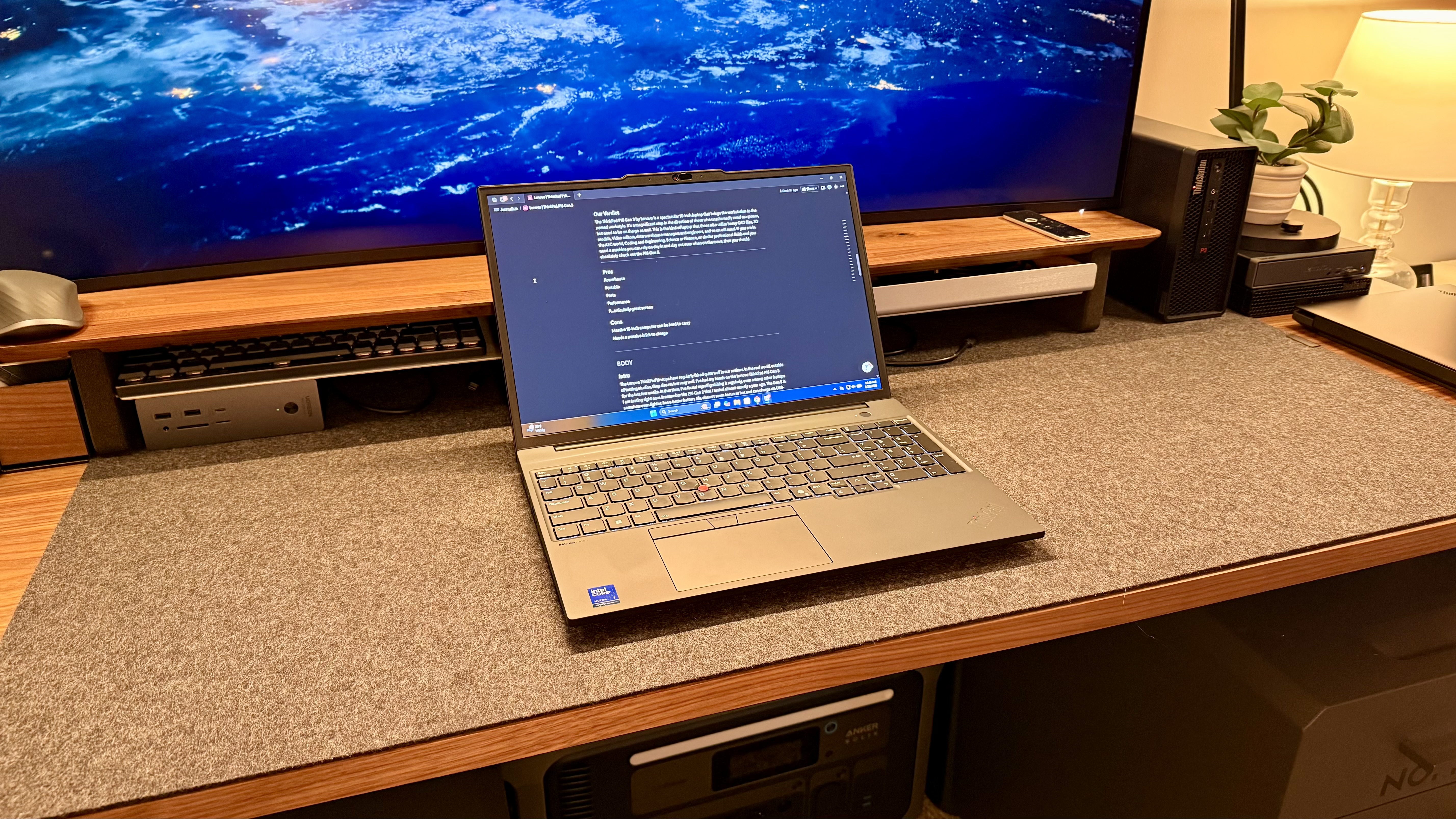
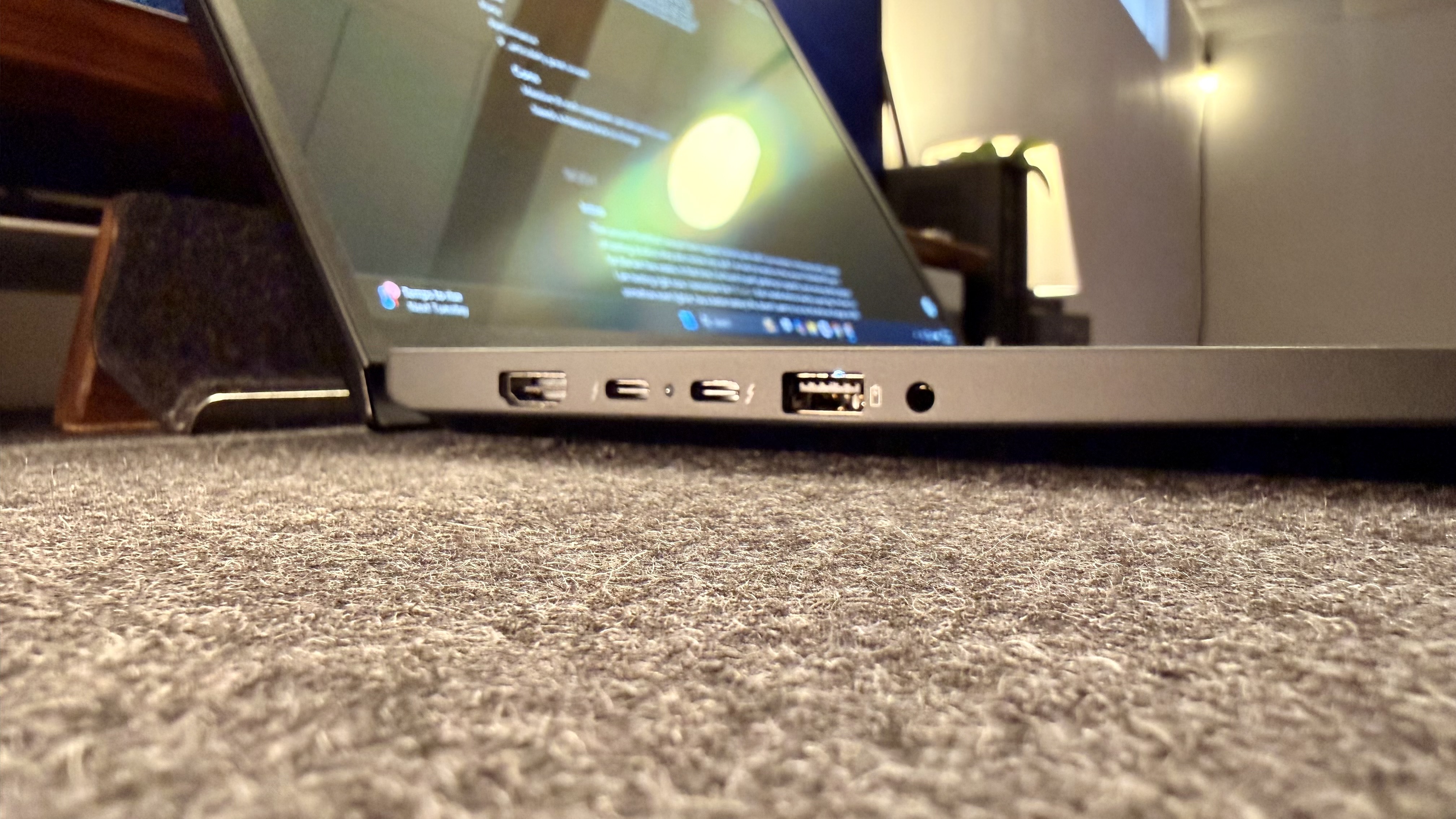
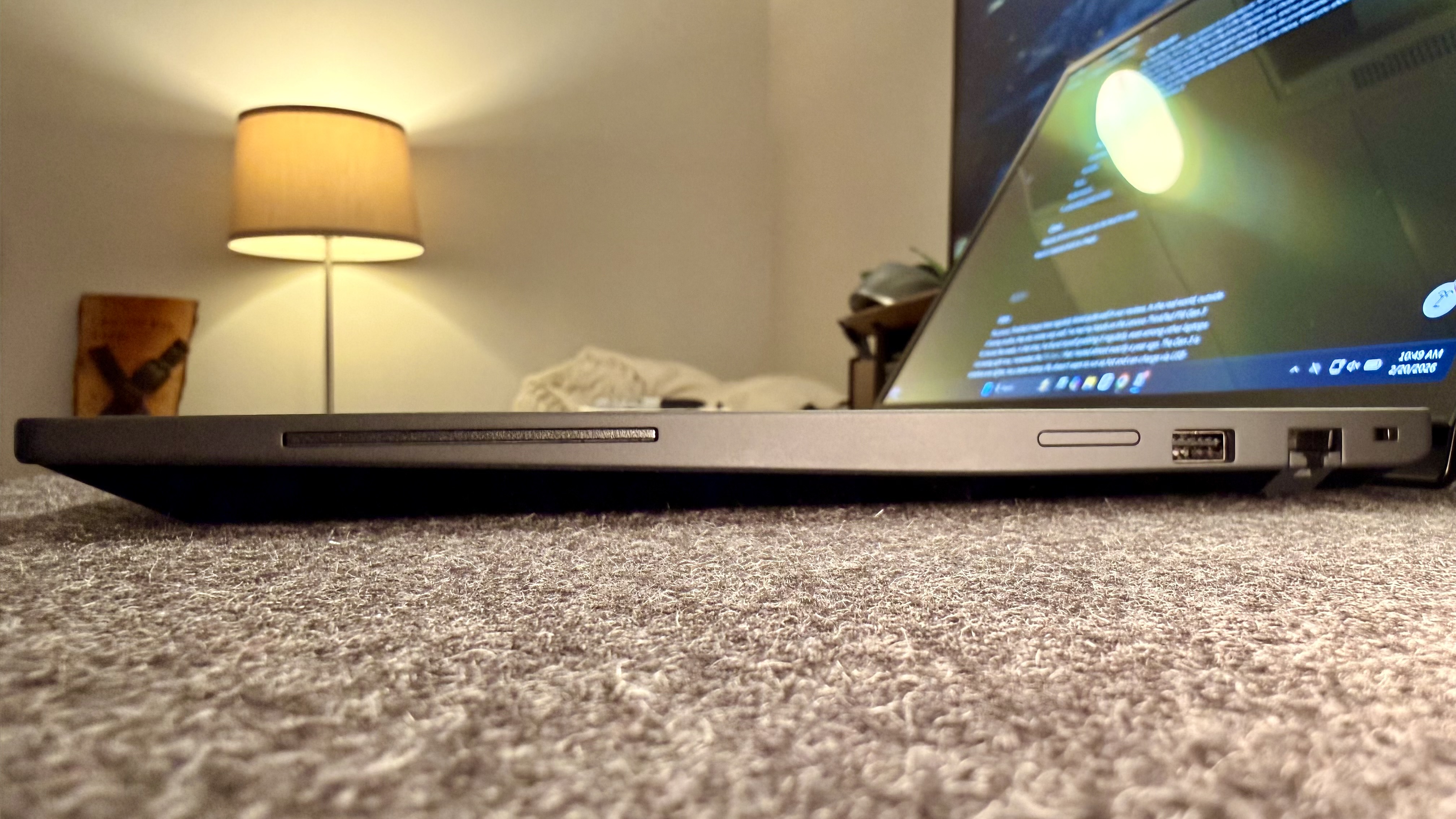
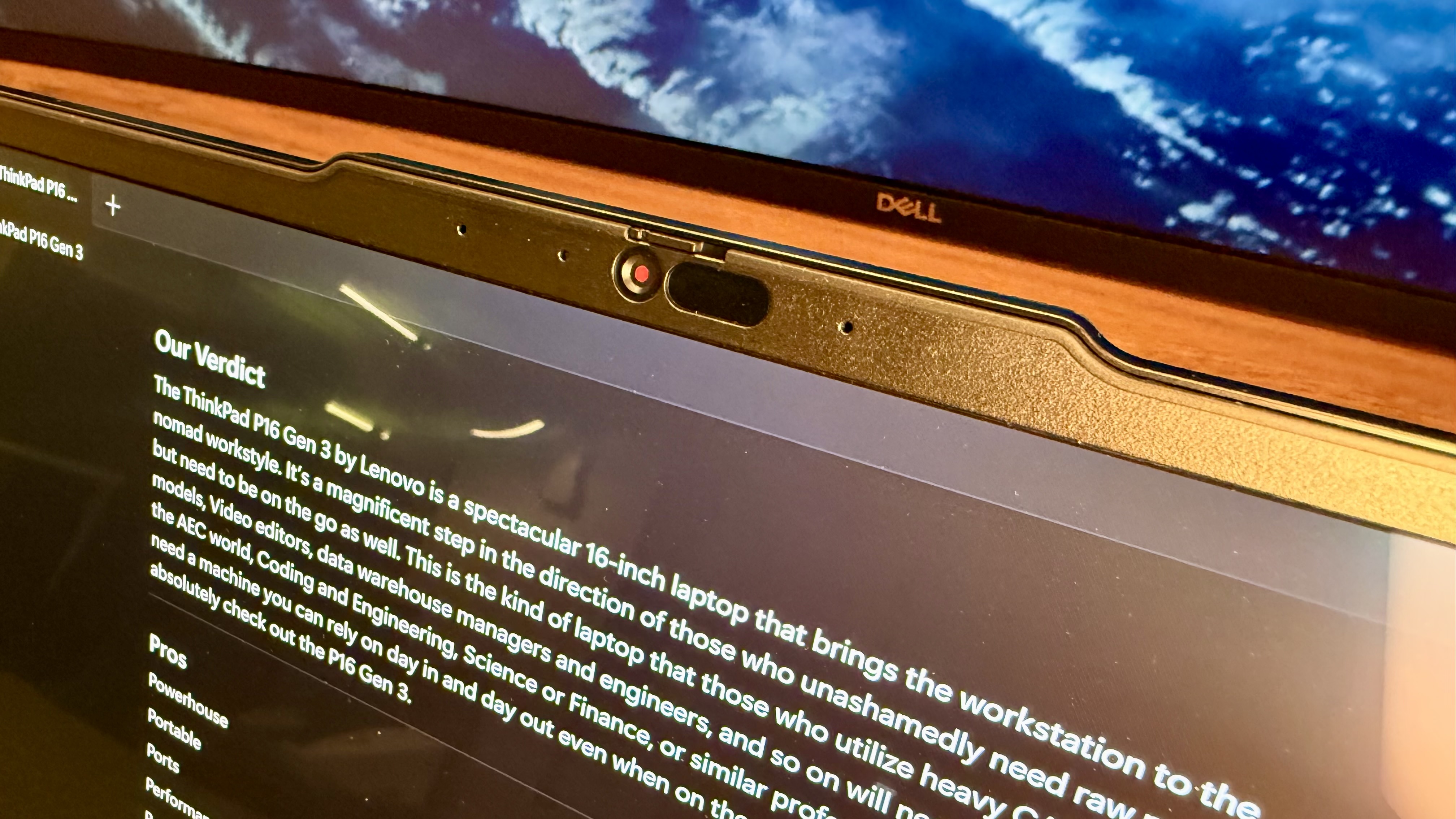
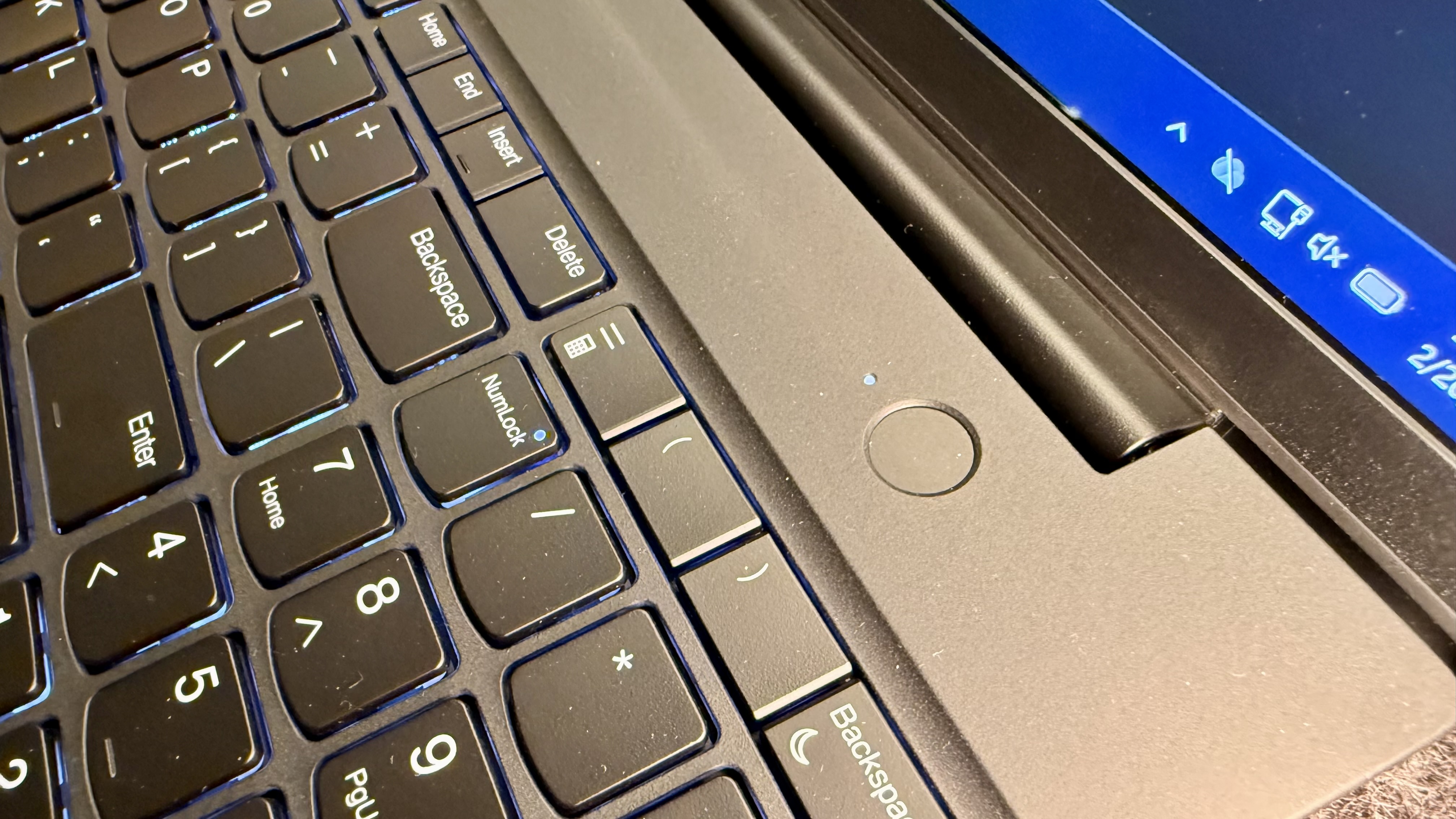
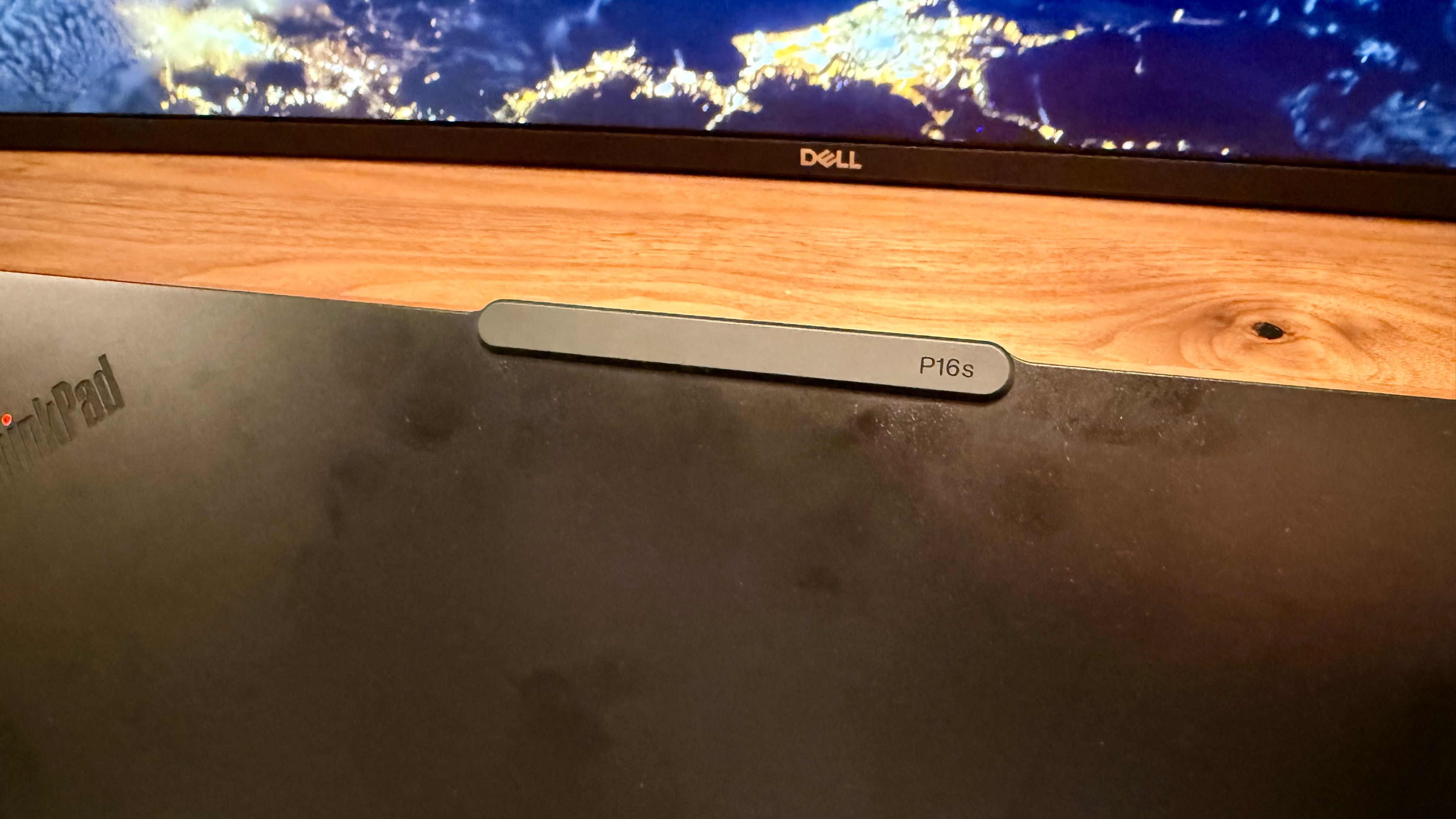
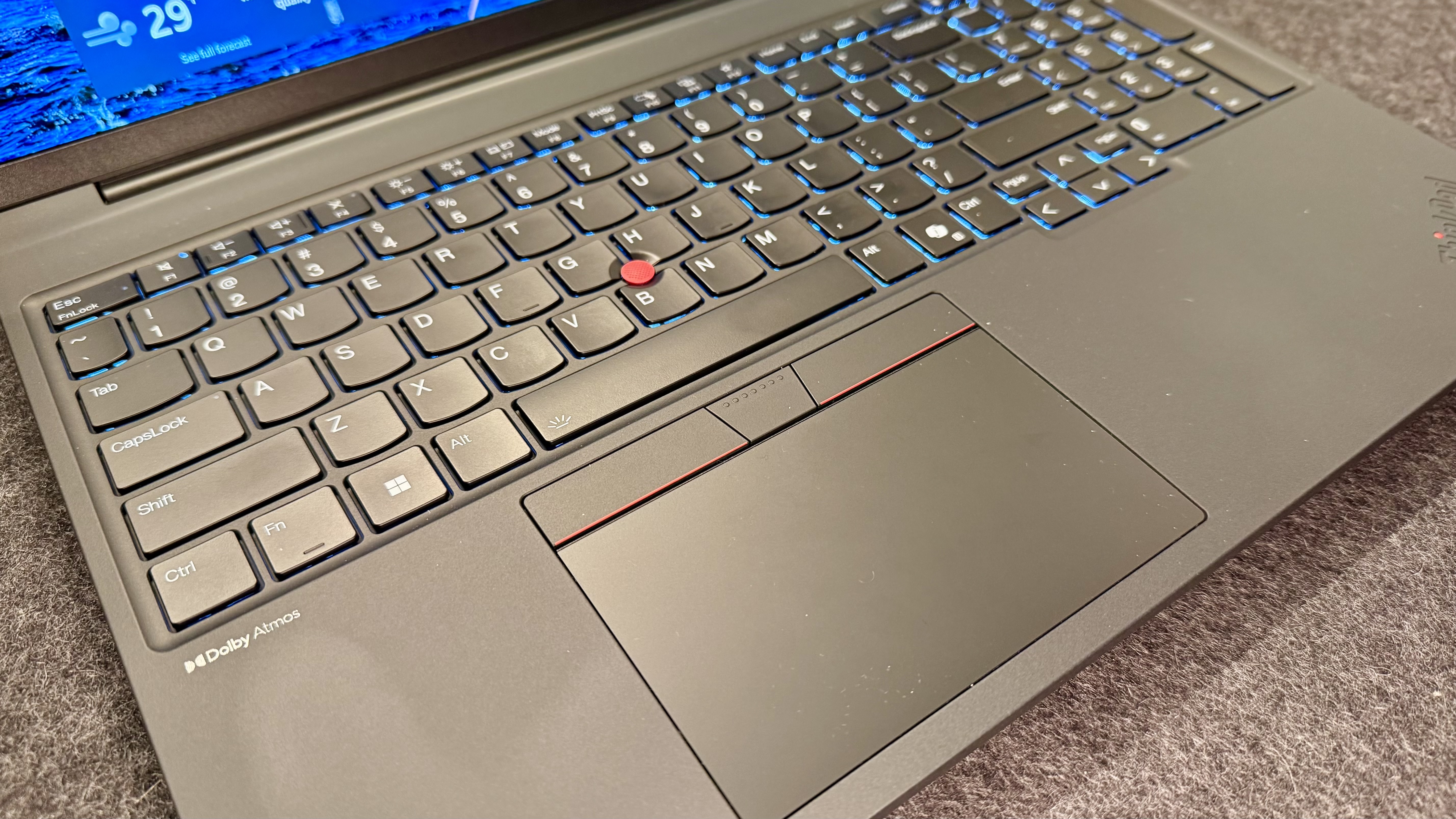
Specifications
Reasons to buy
Reasons to avoid
✅ You want a workstation with fantastic power: The Lenovo ThinkPad P16 offers workstation-levels of performance, packed with outstanding specs that will make running CAD tools smooth and responsive.
✅ You want a comfortable typing experience: Like all ThinkPads, the P16 has a keyboard I absolutely love, delivering an excellent typing experience, which will be useful for all your reports, essays, and more.
❌ You're on a budget or do not need high-end specs: This laptop is definitely not for those looking for a cheap laptop to just get them by. This is a high-end machine.
❌ You need an ultra-portable laptop: The P16 Gen 3 may be lighter than the previous model, but it's still a heavy laptop that's best-suited to setting up in one or two locations during the day, rather than being lugged around from place to place.
The P16 series has consistently impressed during review. Ultra-powerful and with a superbly comfortable keyboard - the the best you can get on any laptop in my experience. So, it makes typing out essays, reports, long lines of code so much more comfortable. But that's not the star of the show with the Lenovo P16 Gen 3.
Having tested this laptop, I found the screen is fantastic, the internals are wonderful, the ports are expansive, and the capabilities feel endless. Once you’ve got the features set up right, when you walk away from the machine, it will dim and hide your content, when you step up closer to the screen, it will brighten up, and prep for unlock, and a few other core things.
This machine feels like it knows you, like it can help you prepare for work, and like it's a co-worker, or an assistant, rather than something you have to deal with.
Keep in mind, you’ll need a good-sized backpack to tote around this 16-inch beast, and since it’s a pretty expensive machine, I’d suggest not just tossing this on your back while whizzing across campus on a skateboard, but you can do as you wish.
In our own tests, this one capably handled general creative tasks like video editing, as well as 3D rendering, CAD, and AI workloads. Beyond that, I tested out its capabilities when dealing with large-scale database management, light engineering, video conversion, and NAS management. Throughout all my heavy workloads, I was thrilled to find I can run them all without having to close down programs.
Now, it's not a cheap mobile workstation, but once you recover from that hit, I really don’t think you will regret this purchase. Yes, it is a large, heavy machine - but I'm pleased to report that it's lighter, runs cooler, and boasts better battery life than the already excellent P16 Gen 2 model. Overall, it easily and effortlessly scored 5 stars in my review.
Read our full Lenovo ThinkPad P16 Gen 3 review
Best laptop for engineering students on a budget
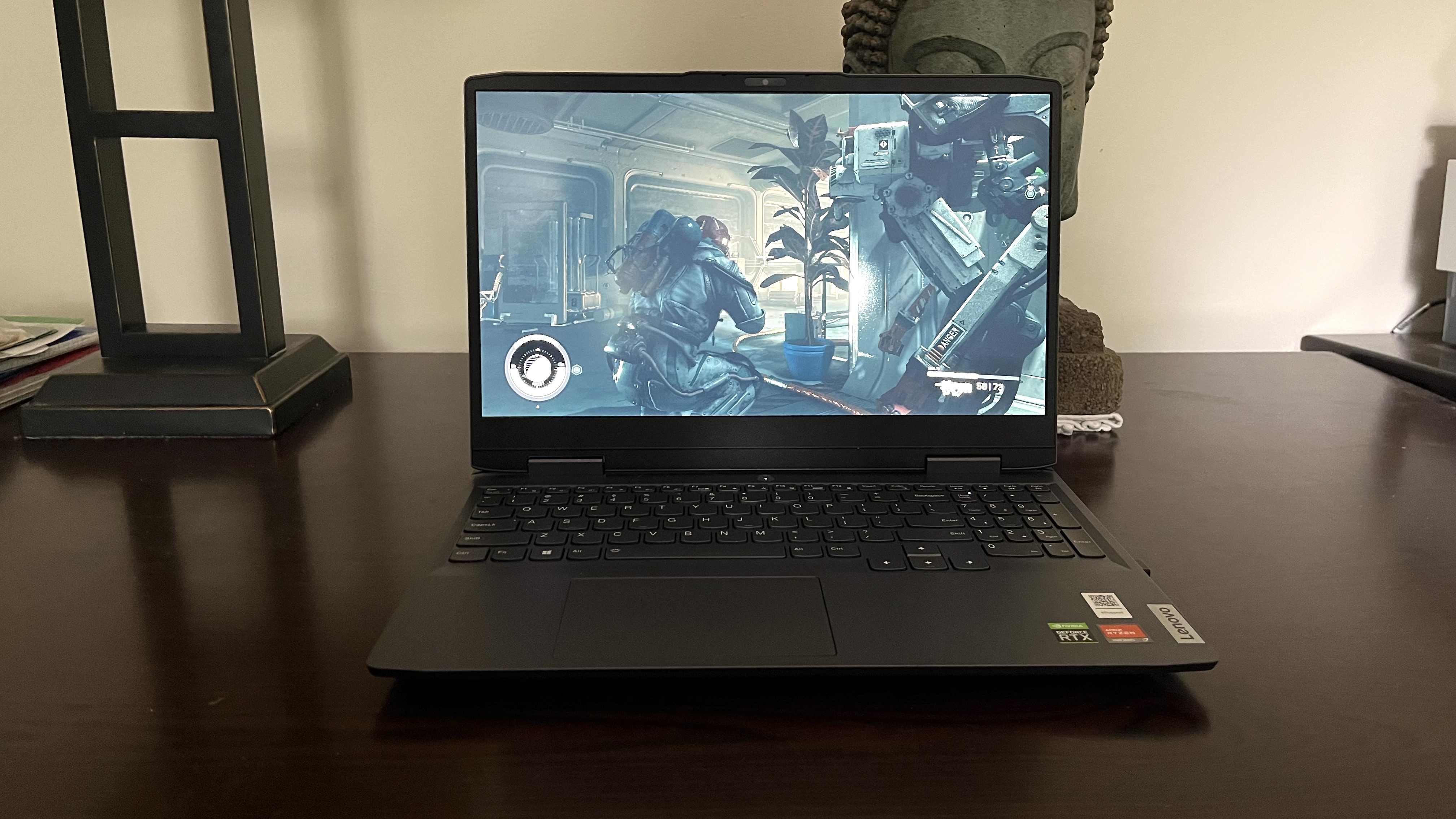
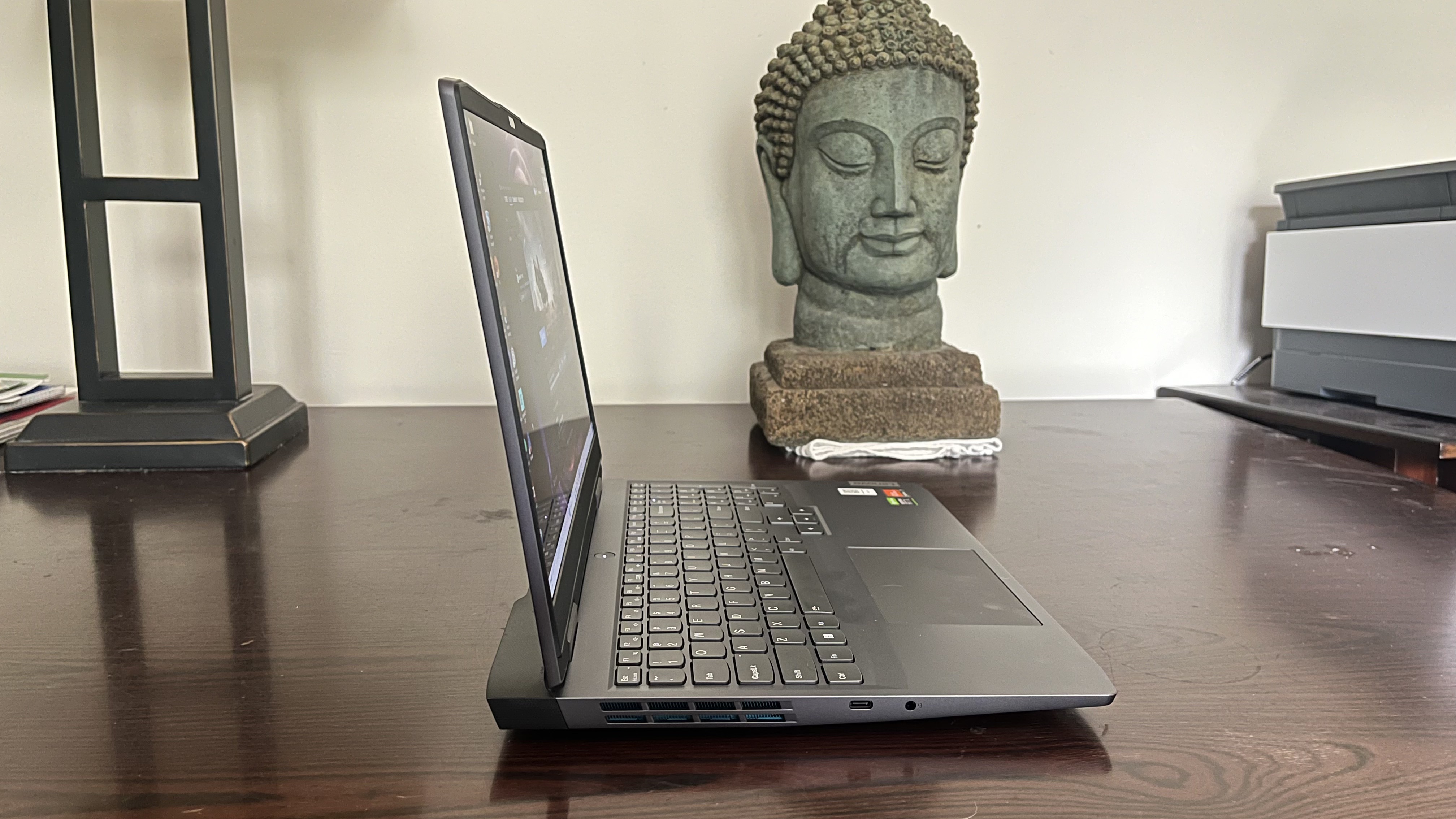
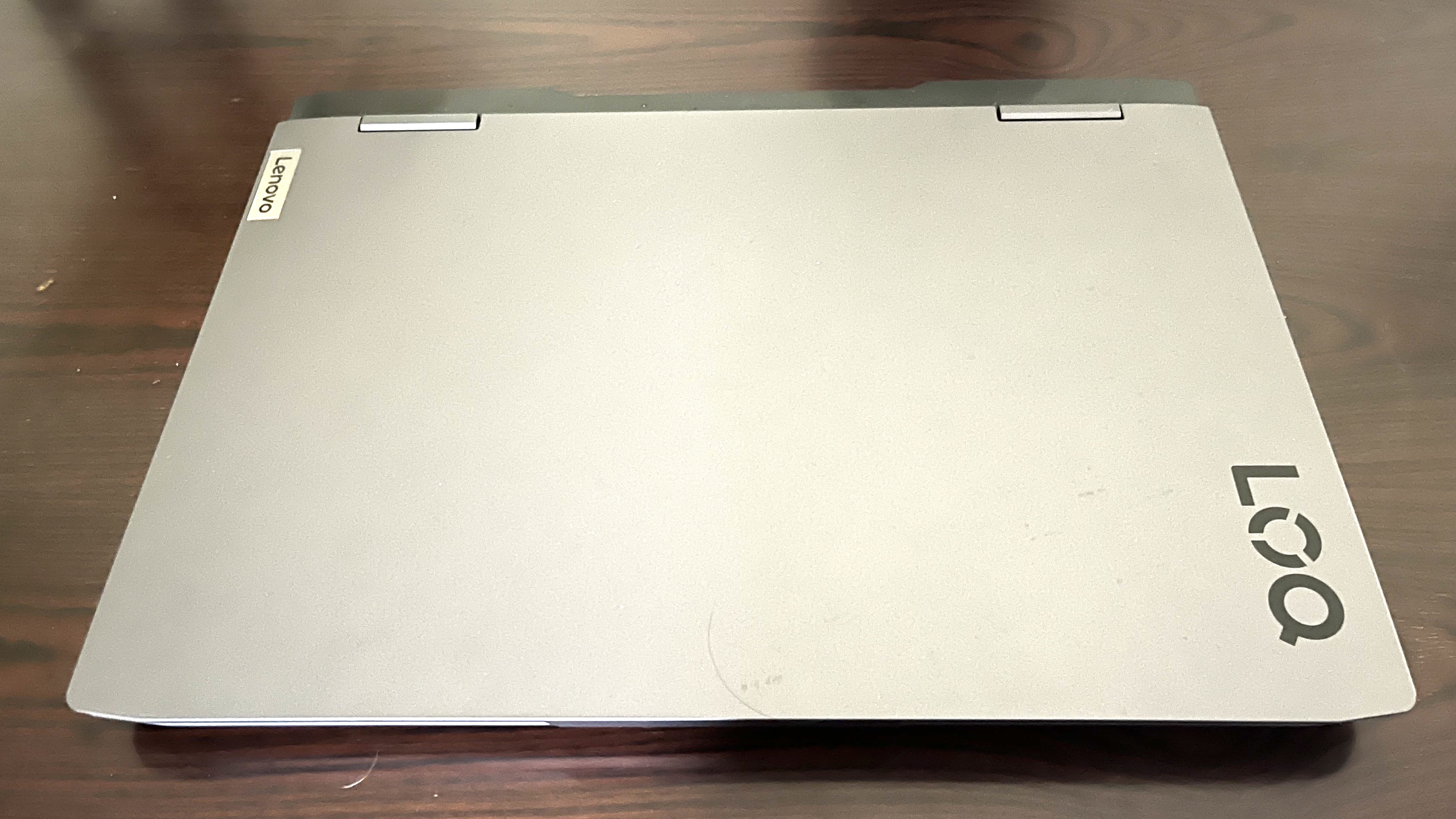
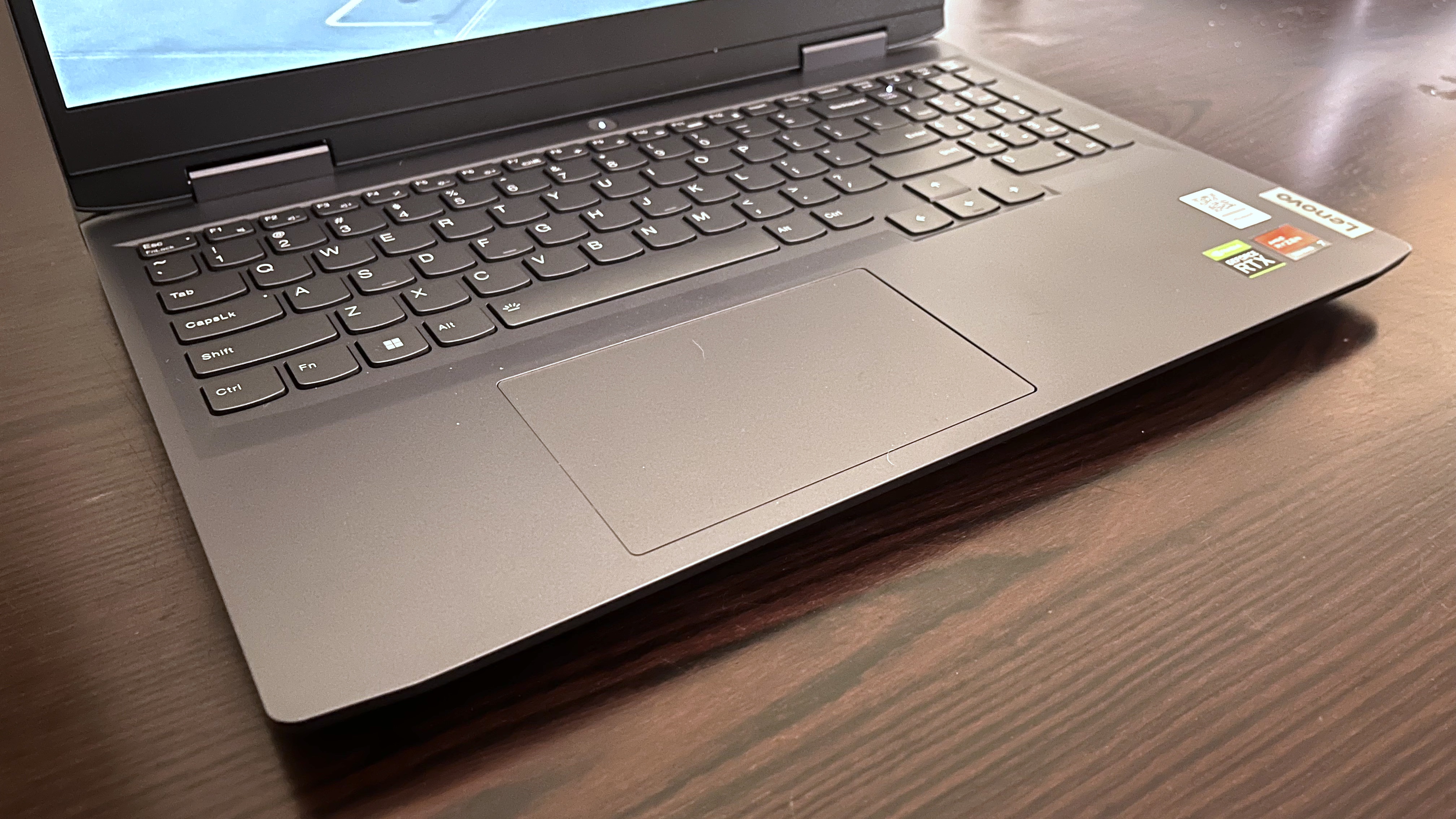
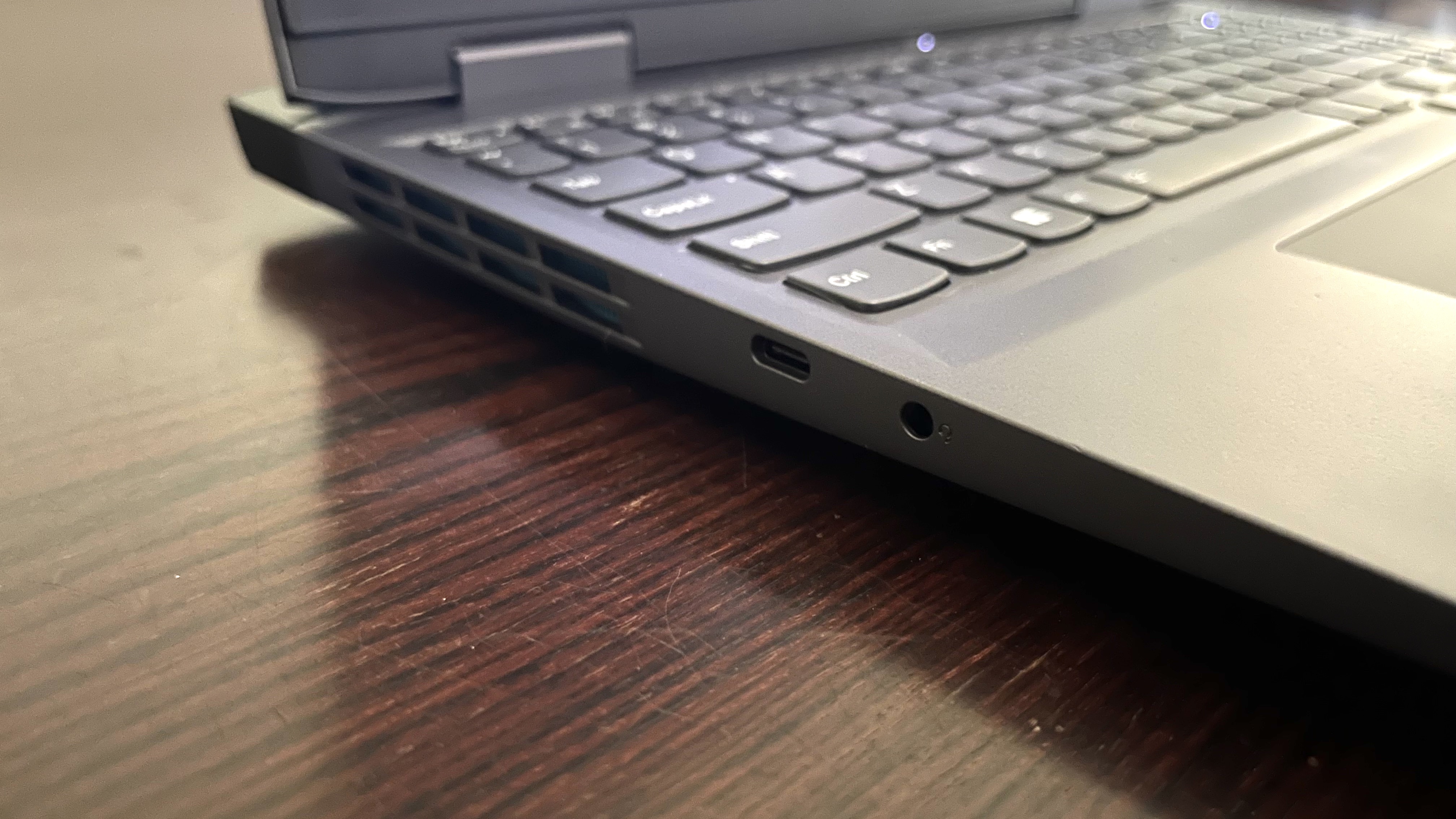
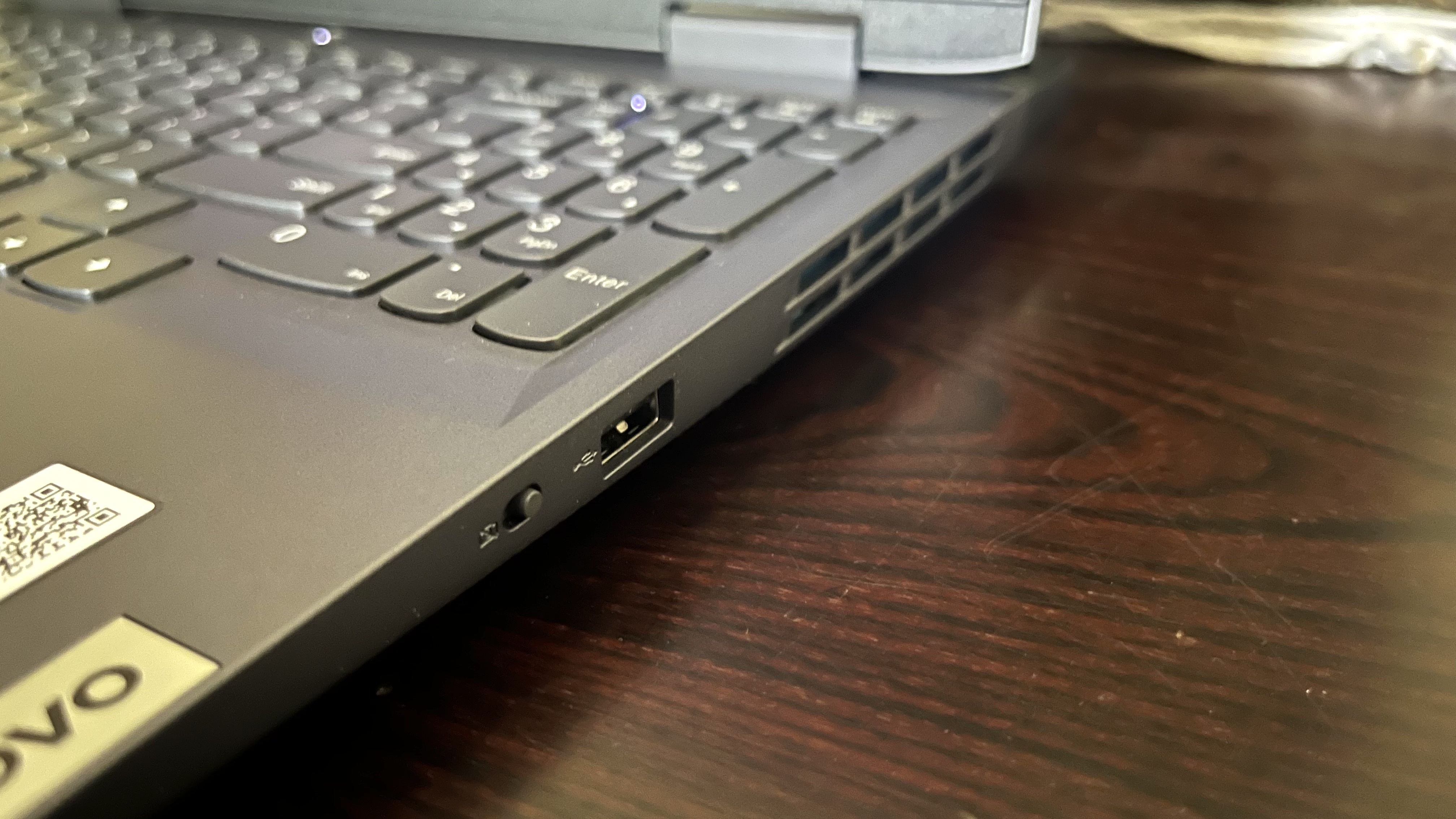
Specifications
Reasons to buy
Reasons to avoid
✅ You want an affordable gaming laptop: Deriving its heritage from Lenovo's Legion line-up, it's particularly adept at running CAD software.
✅ You want a laptop that can handle heavy workloads: We liked the thermal efficiency of this machine for performance without throttling.
❌ You need a long-lasting battery: Battery life is only fair, offering only about 6.5 hours of general usage and far less when pushed to its limits.
❌ Ultra-portability is important to you: It's about as portable as you'd expect a decked-out budget laptop to be, and weighs in at 5.3lbs.
The Lenovo LOQ 15 is a budget student and gaming laptop that's well-specced for a range of engineering tasks thanks to its H-series CPU, dedicated graphics card, and - most interestingly - an MUX switch that connects the GPU directly to the display. Oh, and add in the ever-excellent Lenovo keyboard for a more comfortable typing experience.
We found performance to be good across the board (we chiefly tested it on resource-heavy games, where it proved to be "rock-solid"). It's available in a range of configurations. But for engineering, I'd recommend a minimum 16GB RAM and ideally an AMD CPU, as it offers excellent multi-core performance for smoothly running CAD software. I also find it's better for cooling during heavy workloads compared to Intel chips.
Budget alternatives to consider include the HP Victus 15 and the MSI Katana 15 - both reasonably priced, but I'd opt for the Lenovo machine for its more robust build quality, comfortable keyboard, MUX switch, and general performance.
Read our full Lenovo LOQ 15 review
Best laptop for engineering students running heavy CAD
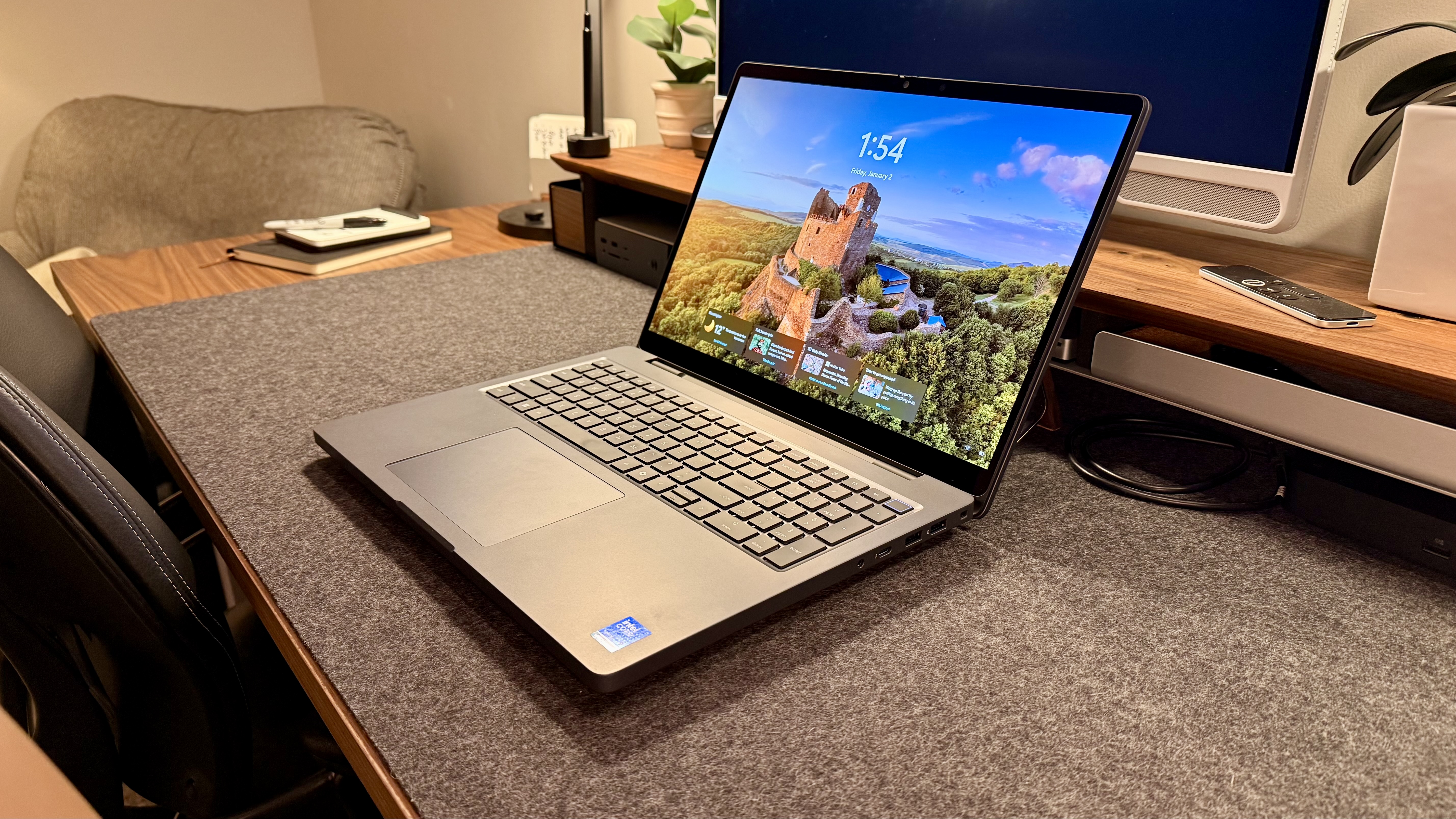
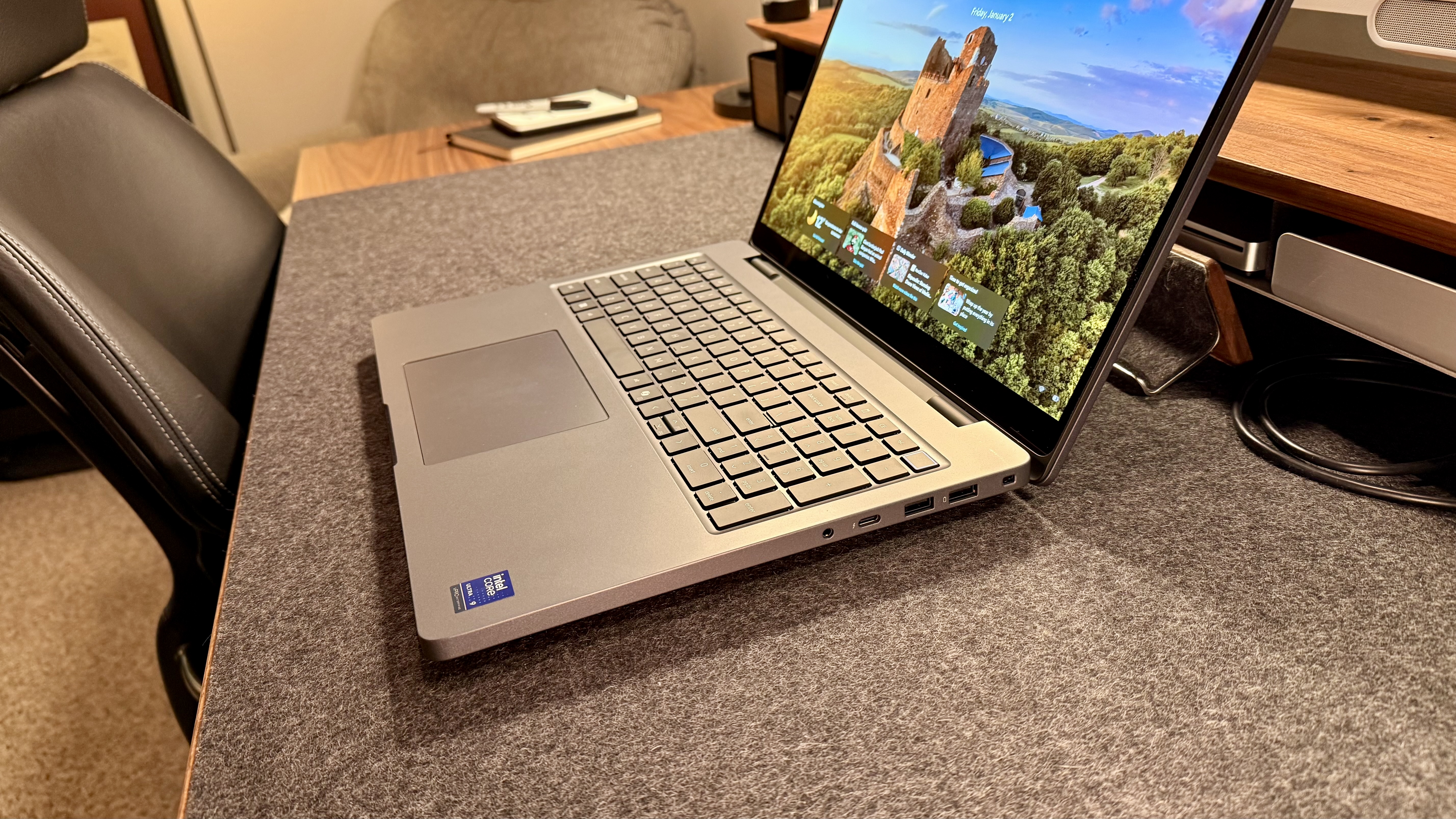
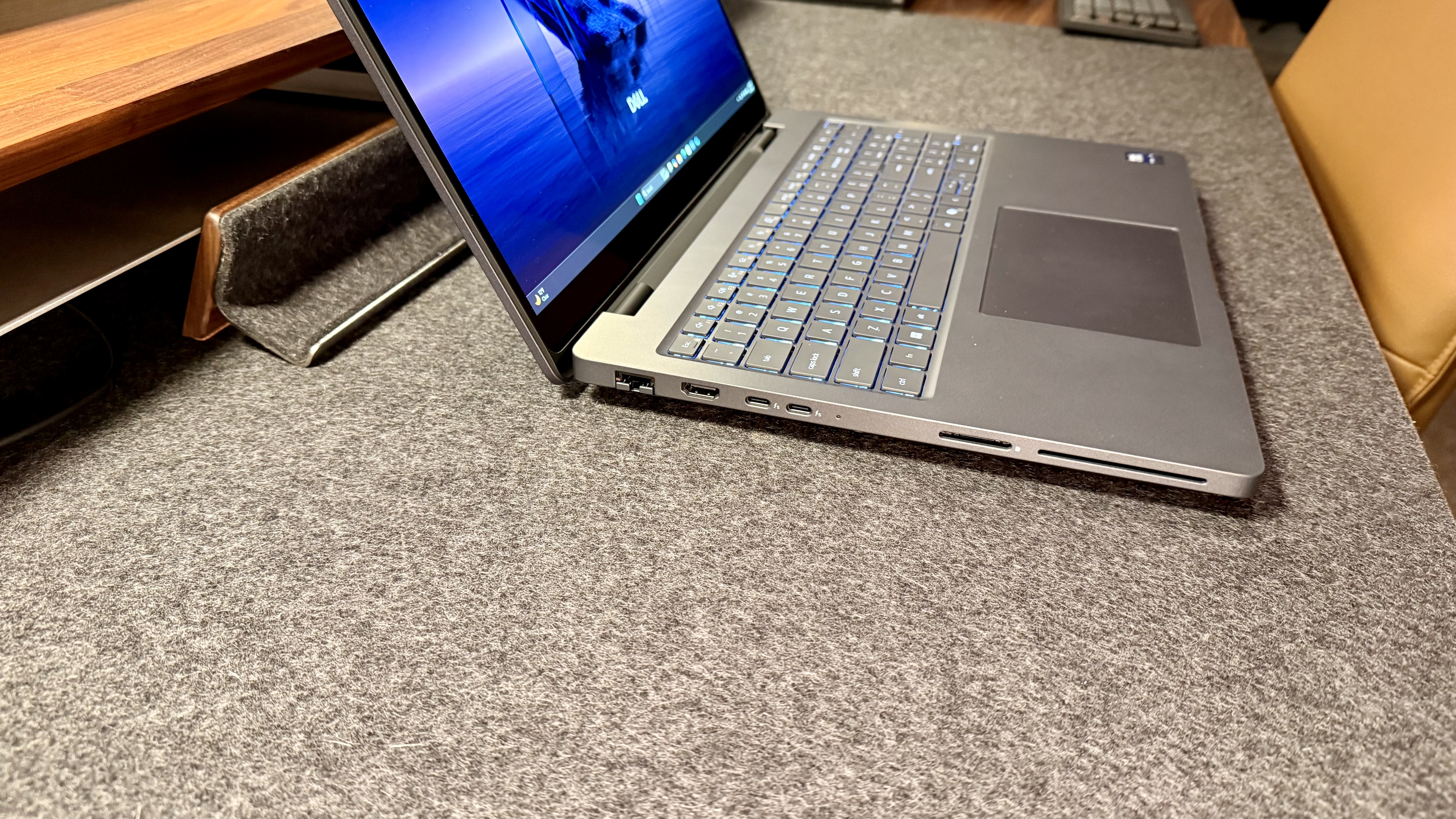
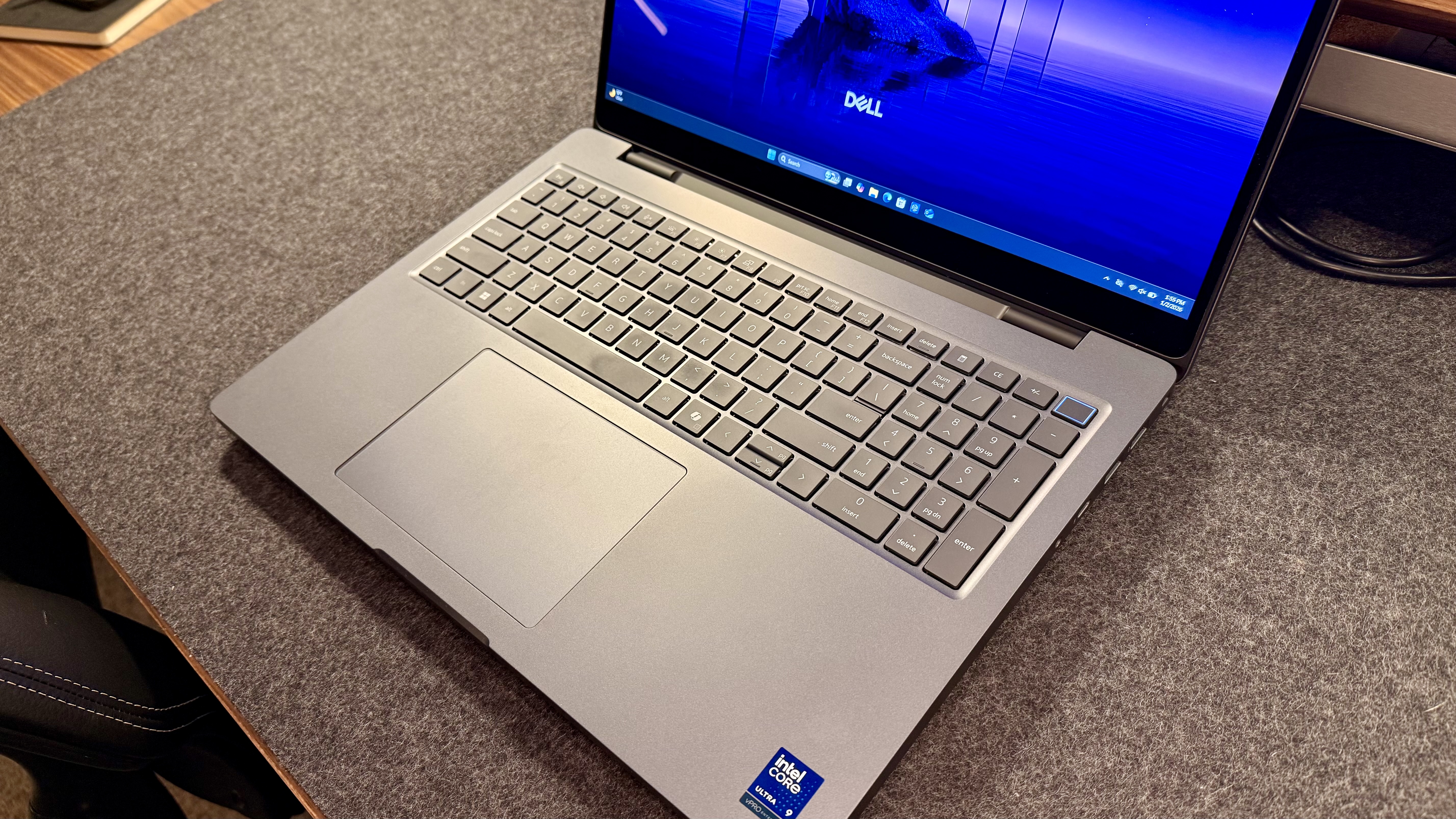
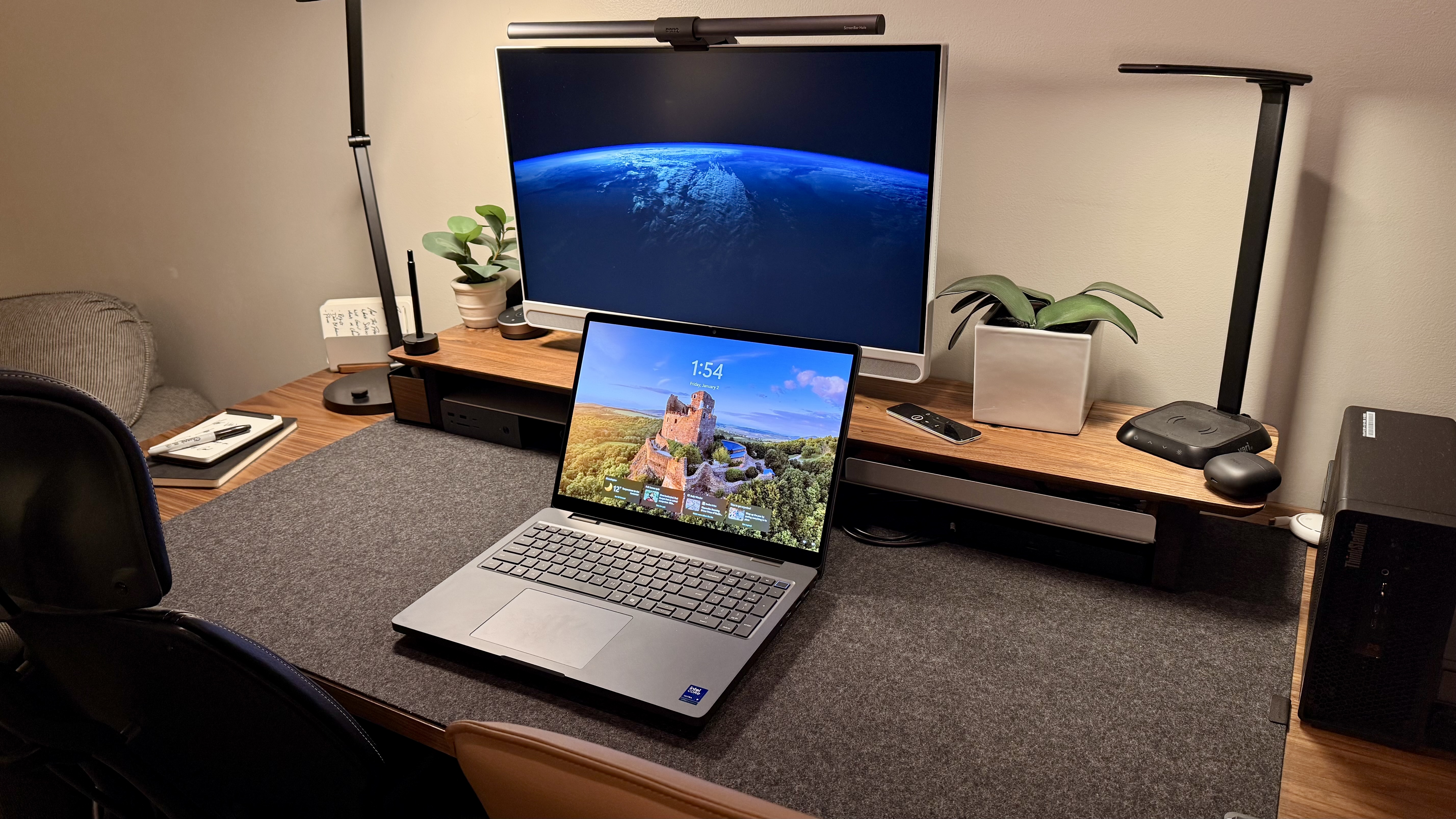
Specifications
Reasons to buy
Reasons to avoid
✅ You want a machine that can tackle desktop duties: The Pro Max 16 Plus stunned us with its sheer power, delivering desktop-class performance throughout our tests.
✅ You want one of the most portable mobile workstation around: While it's not totally compact, its size and weight make it portable enough to carry in a large backpack.
❌ You’re working to a budget: This is an expensive unit, as you'd expect with specs like these.
❌ You're working outside or under bright lights: One of the biggest issues we found was the limited 500 nits brightness of the display. Bright enough, of course, but it may prove a problem in direct sunlight or very bright lights of a studio or workshop.
For heavy duty workloads where you need desktop-class power, the Dell Pro Max 16 Plus is a phenomenally good Windows 11 Pro laptop.
Performance proved to be superb during our tests. We tried it running local dev environments, large codebases, large CAD files, local LLMs, and just about every productivity app we could lay our hands on. And the laptop never missed a beat.
On top of that, the machine features Thunderbolt 5 connectivity, a glorious 16in screen (in either FHD+ or OLED, depending the configuration). Even the keyboard proved more than comfortable for all-day typing. Not quite as good as a ThinkPad, but as close as you can get.
There's not much in it between this machine and the ThinkPad P16 - both are high-cost, enterprise-grade mobile workstations that are future-proofed for the duration of your class and even professional life. For me, it's really a case of pick your poison here. I prefer the ThinkPad for the keyboard, but the Pro Max 16 Plus for its slightly better portability.
Read our full Dell Pro Max 16 Plus review
Best MacBook laptop for software engineering students
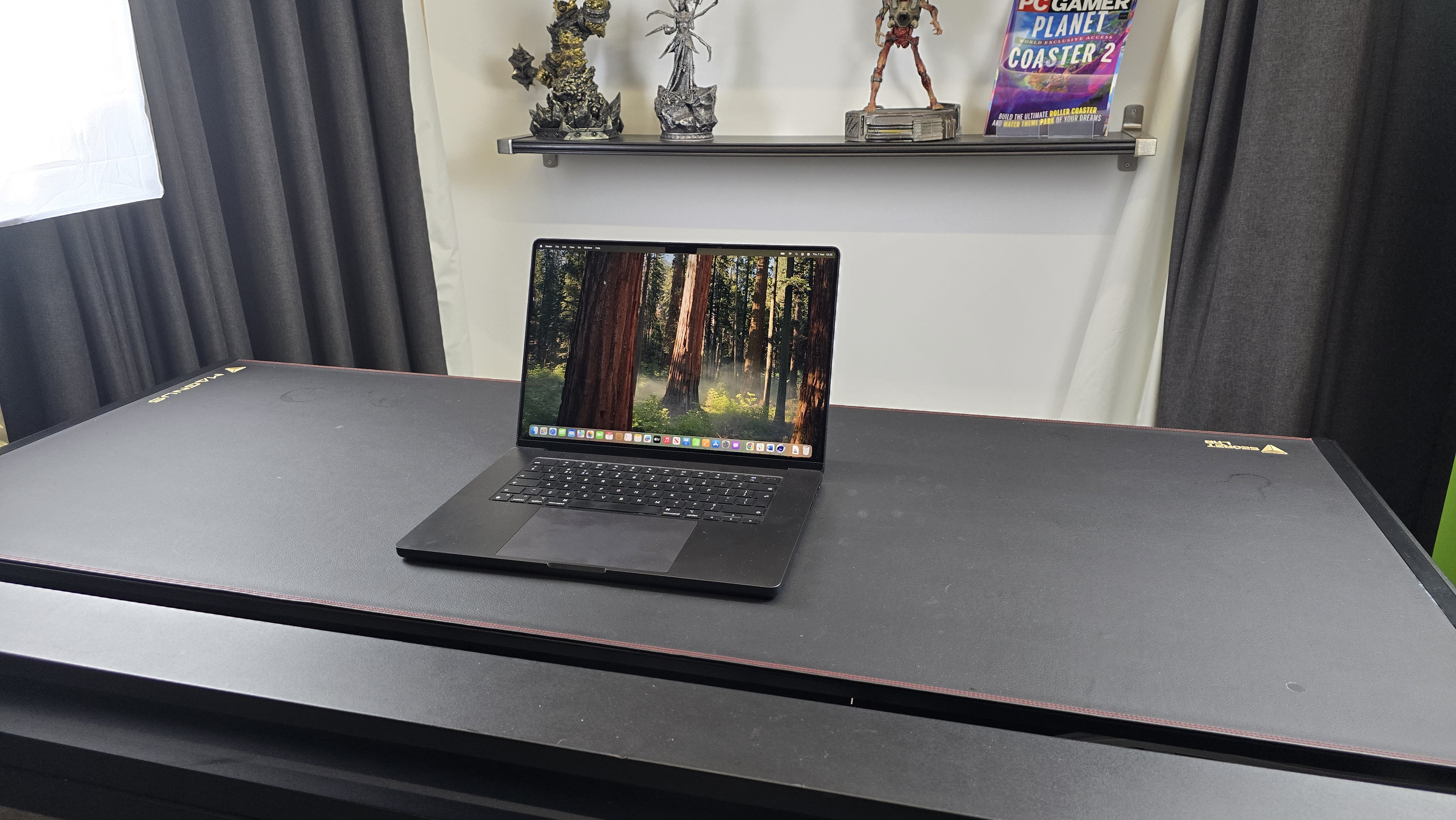
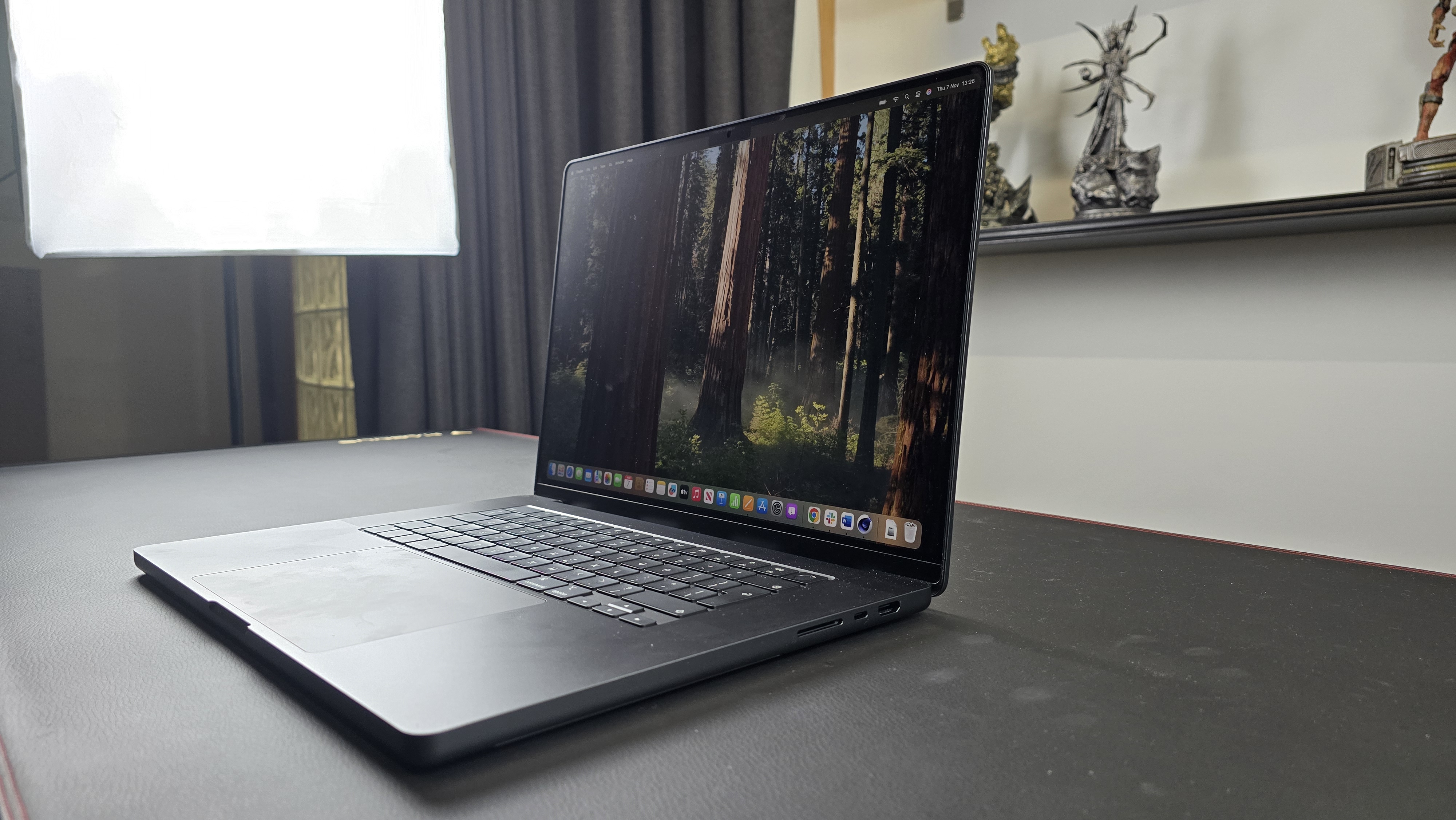
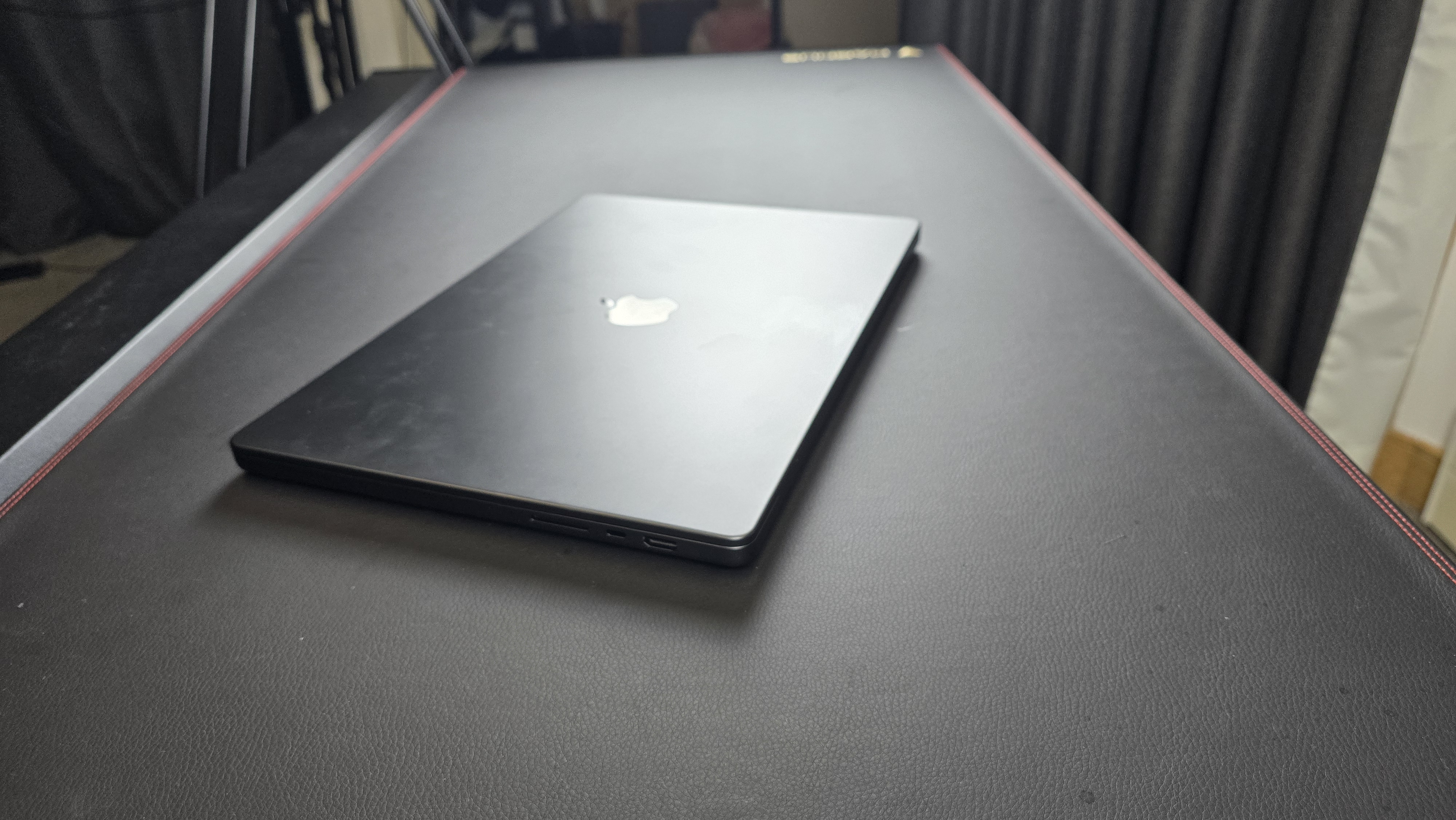
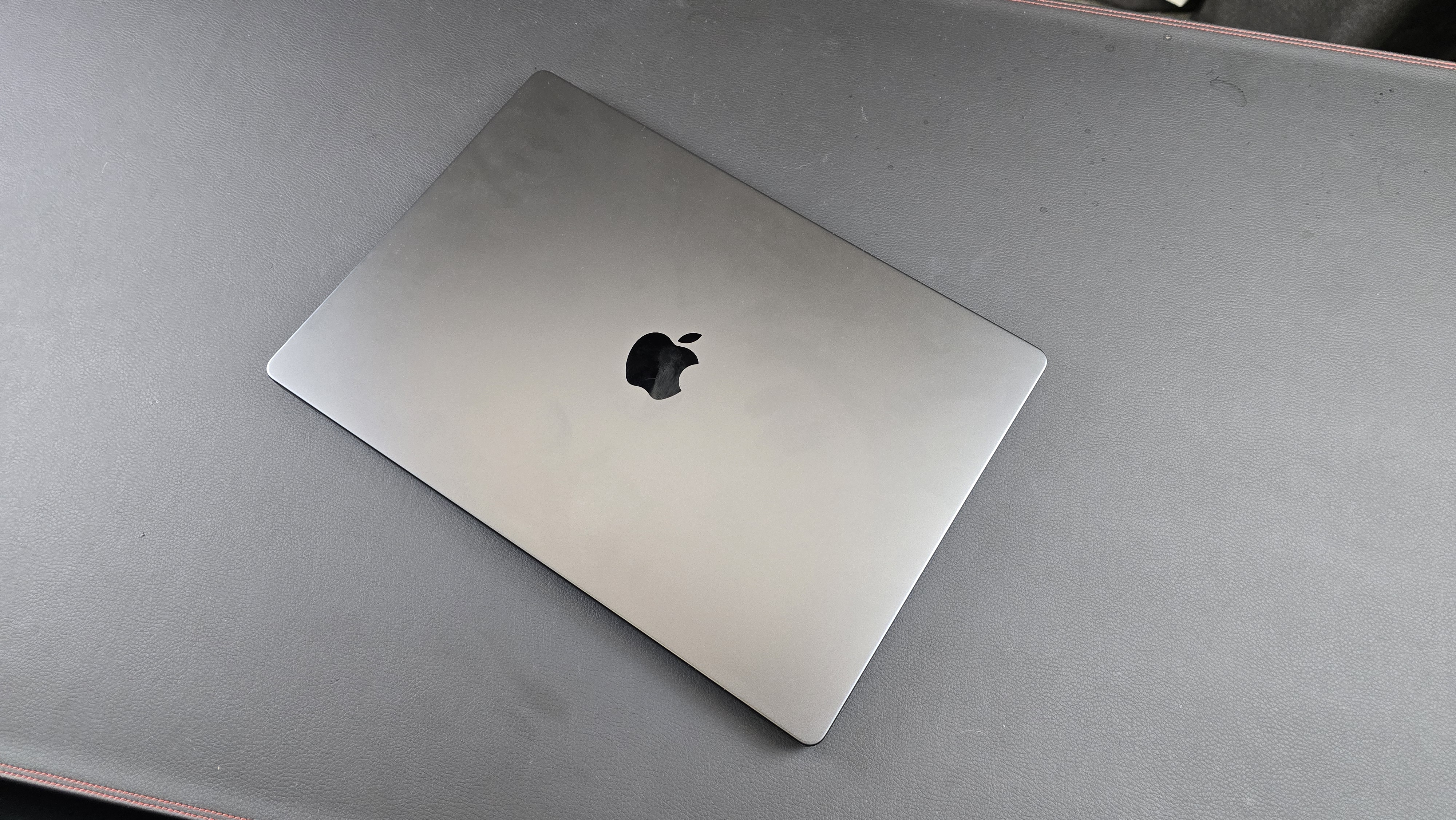
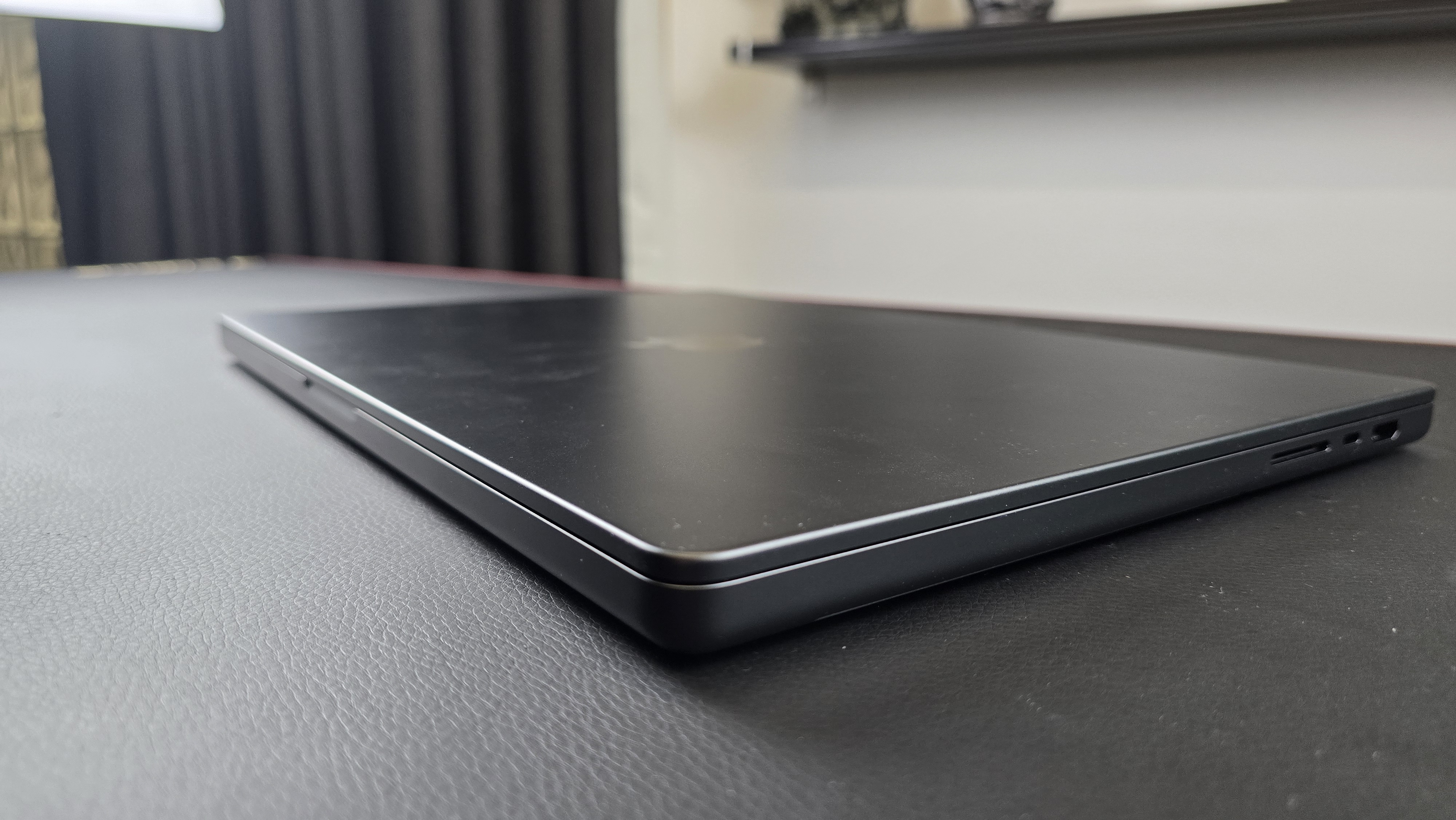
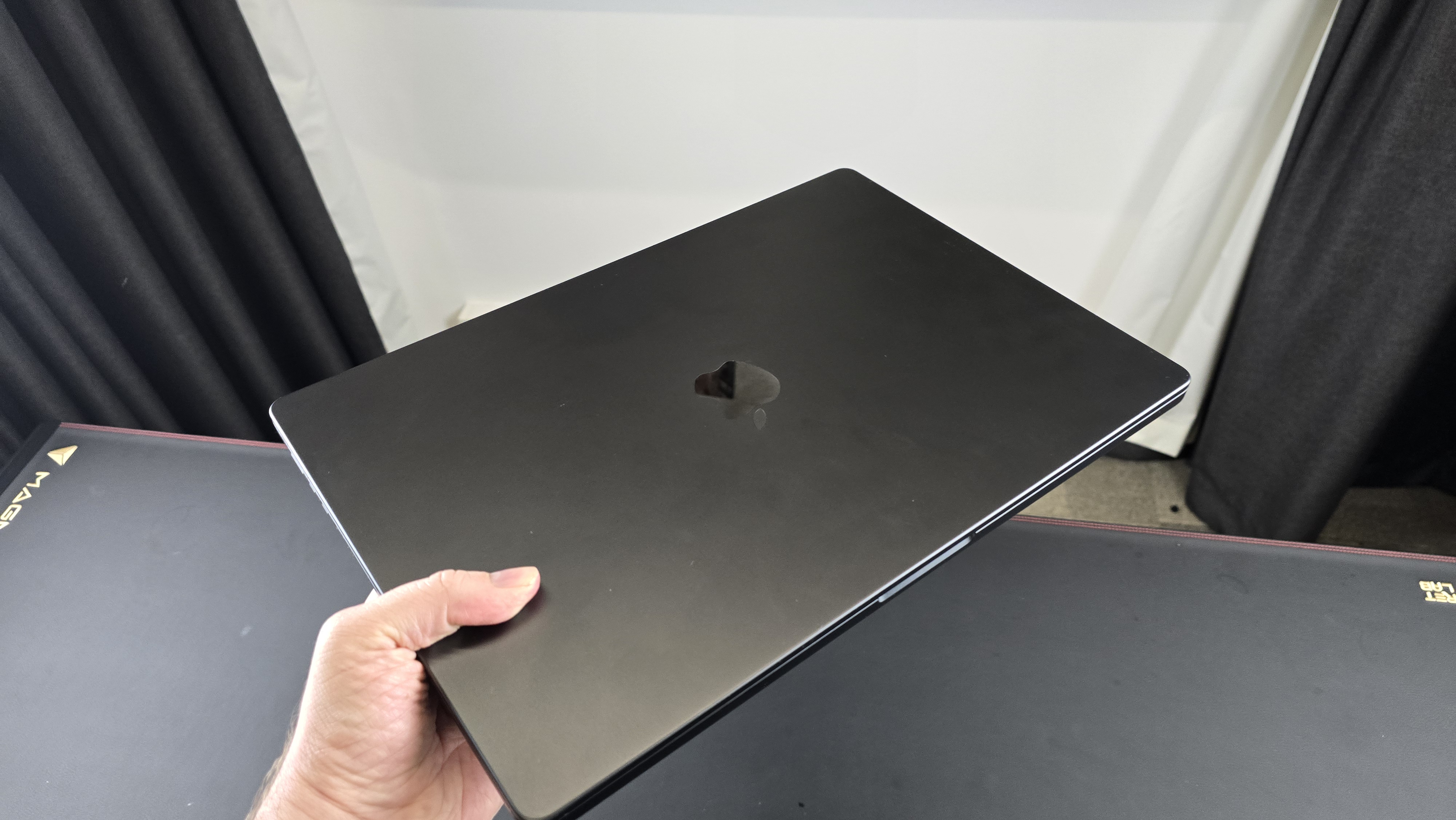
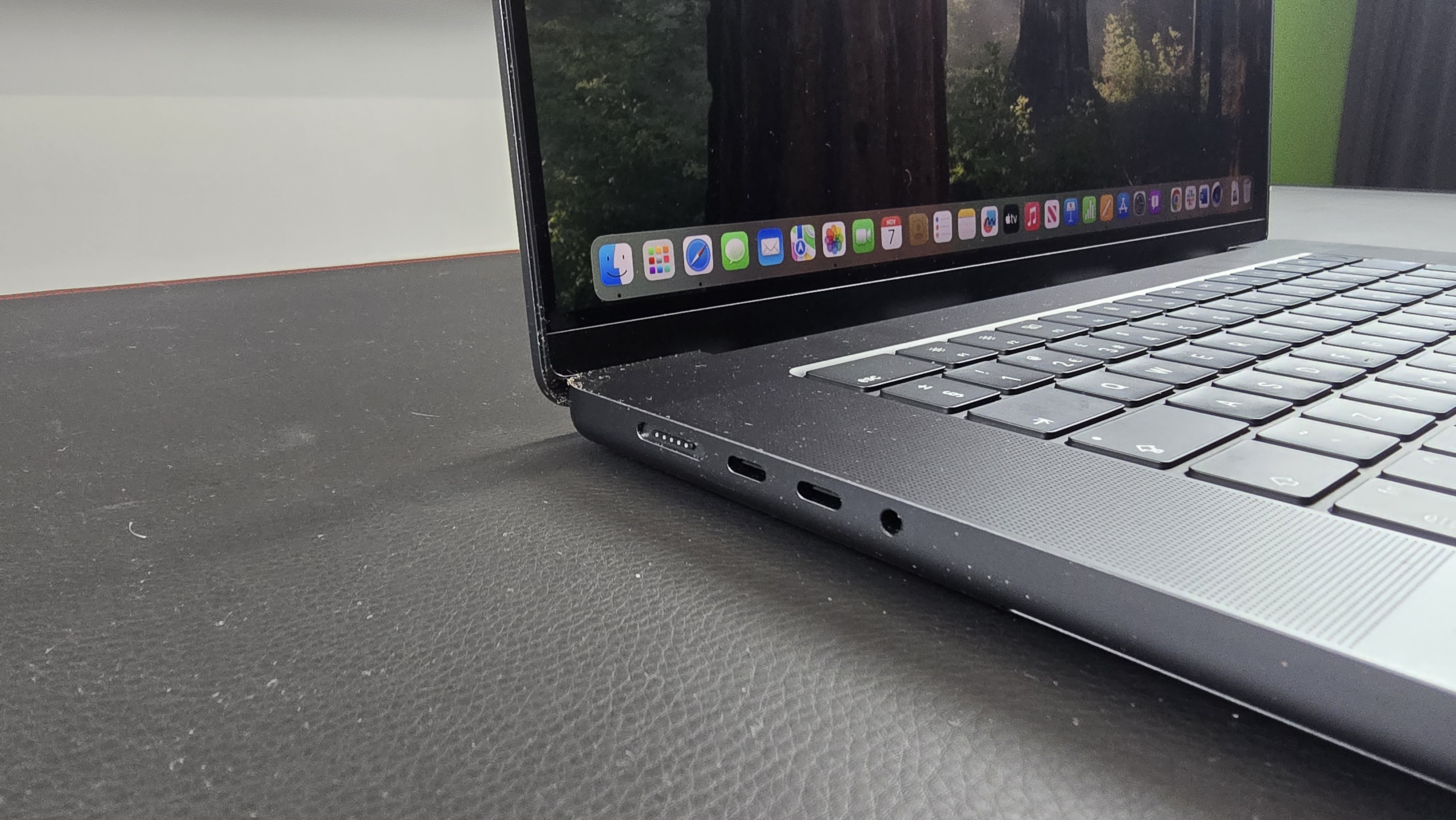
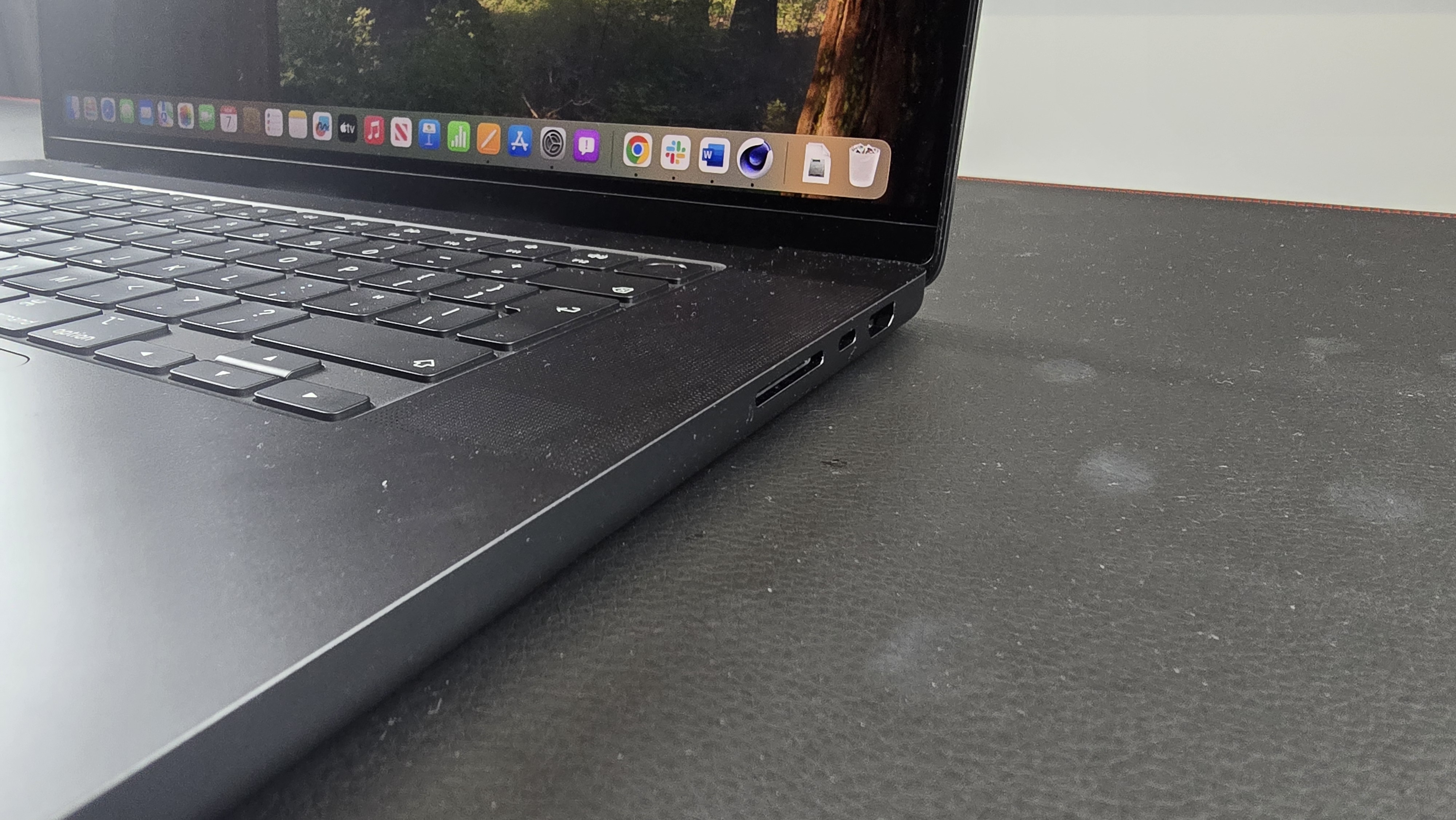
Specifications
Reasons to buy
Reasons to avoid
✅ You want best-in-class performance: In our tests, the M4 Pro chip delivered impressive performance across the board, from lightweight office tasks to heavy-duty workloads like CAD and video editing.
✅ You want the best display you can get: With its 16in Liquid Retina Display, this is still the best screen you can get on any laptop - and also boasts True Tone technology and a Wide P3 gamut.
❌ You’re on a budget: It’s a powerful and beautiful laptop, but the MacBook Pro isn’t a cheap device by any stretch of the imagination. Nor does it seriously out-perform the older M3 Pro - it is an improvement, but not a ground-breaking one.
❌ Your course uses Windows apps: Alright, most apps these days work across Windows and macOS, but certain mechanical engineering apps won't and your engineering course may be limited to software on Windows.
The Apple MacBook Pro is arguably one of the best laptops around - beautifully designed, the high-performance M4 Pro version is effectively a workstation that will effortlessly power you through your engineering course.
In our benchmarking, performance was excellent in both simulated and real-world tests, and using the MacBook Pro 16in left us impressed. It’s fast, responsive, showing no slowdown of lagging even with multiple apps open at once. But then, that’s to be expected. It’s built to tackle heavy workloads like design to 4K video editing (and performed these well during our time with the machine.
Overall, we found it silent and efficient regardless of what we threw at it. Better still, battery life is absolutely exceptional. In our testing, we squeezed over 21 hours of life from it on a single charge. This is going to be a life-saver for those working on campus - you won’t need to worry about hunting down a mains outlet. Nor did we feel performance was throttled in any way while running off the battery.
It’s not a cheap laptop, of course, and total overkill for everyday tasks like running office apps. And if you already own the M3 Pro model, I wouldn’t recommend upgrading if you don’t want to - the M4 Pro didn’t offer that much of a performance boost in our tests, and the design is basically identical. But if you want Apple’s latest and greatest, there’s a lot to like with the new MacBook Pro.
Read our full Apple MacBook Pro 16in (M4 Pro) review
Best 2-in-1 laptop for engineering students
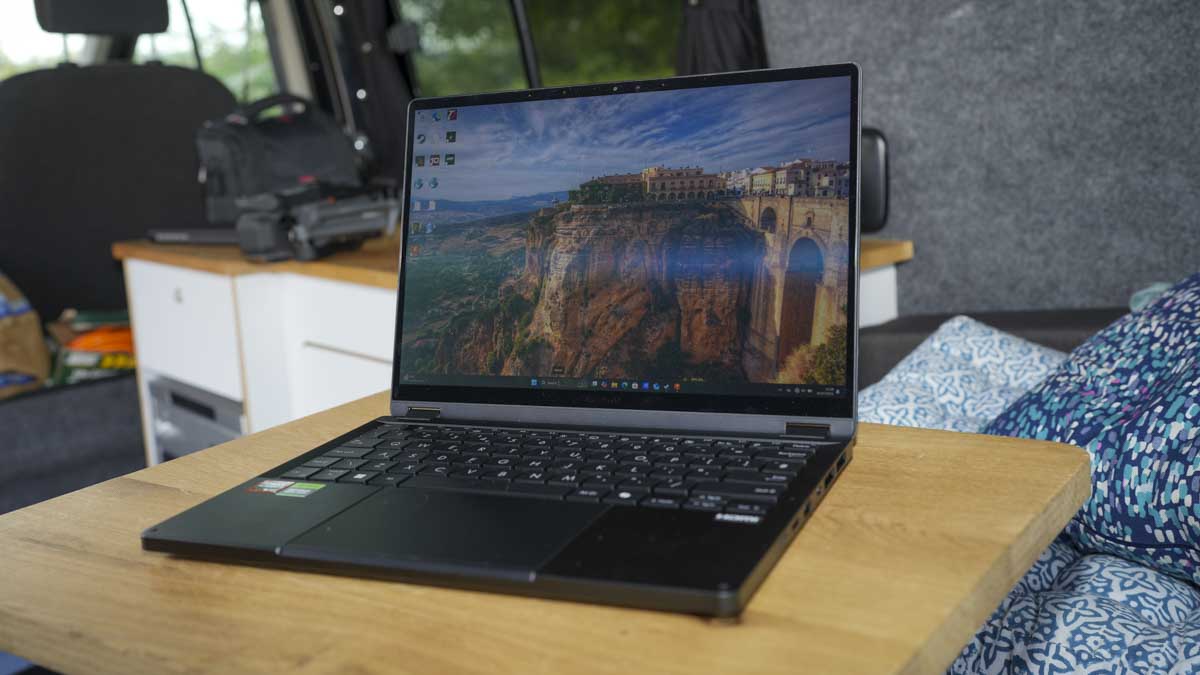
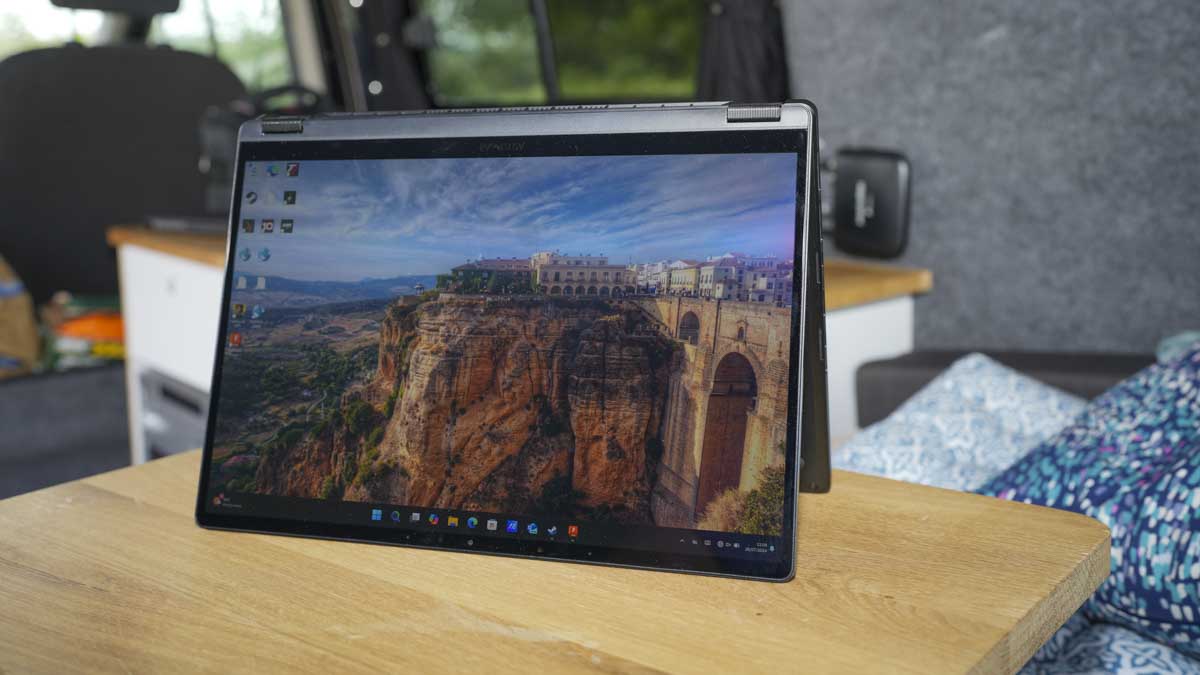
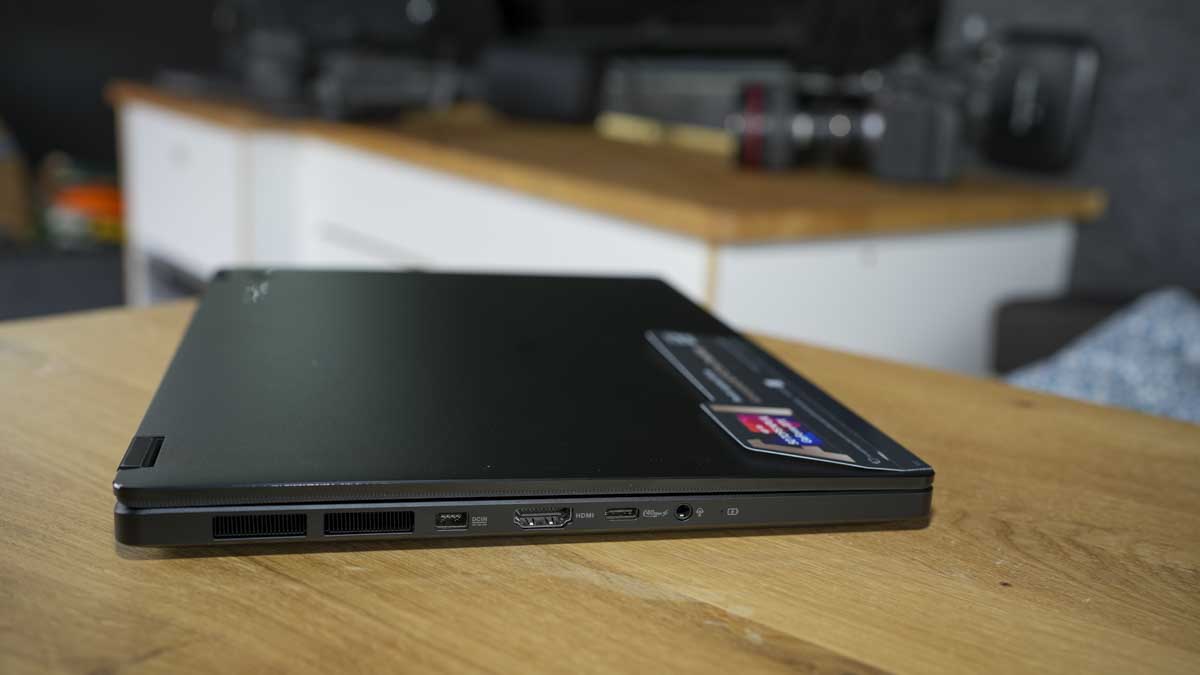
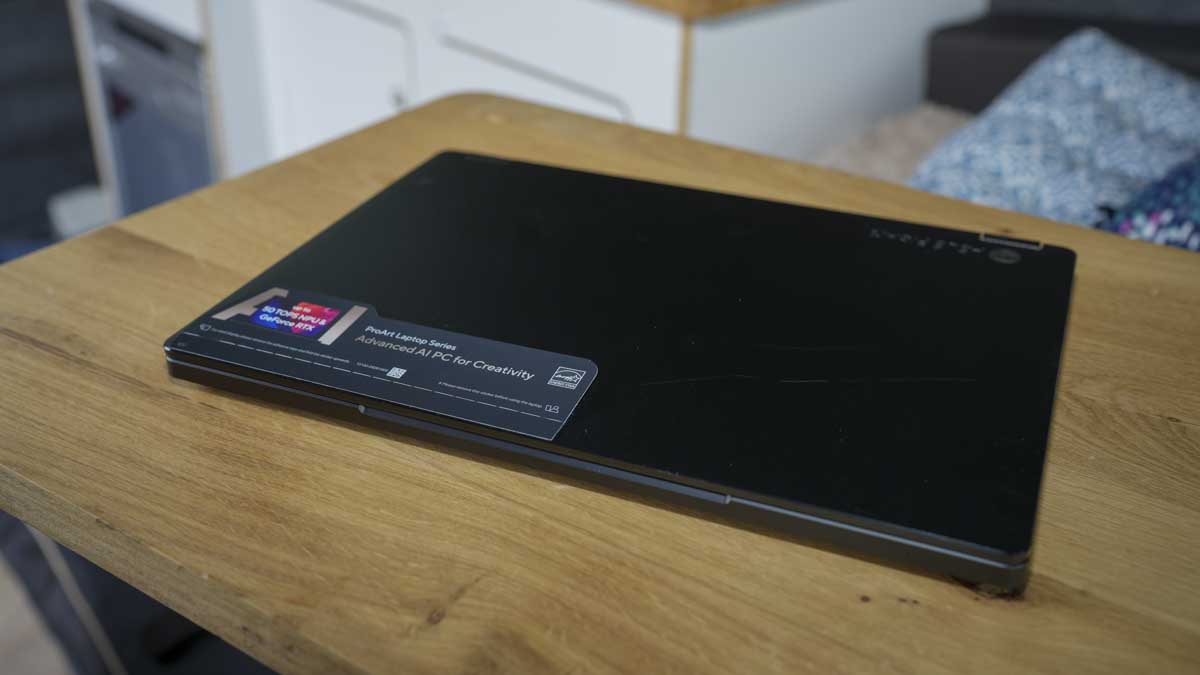
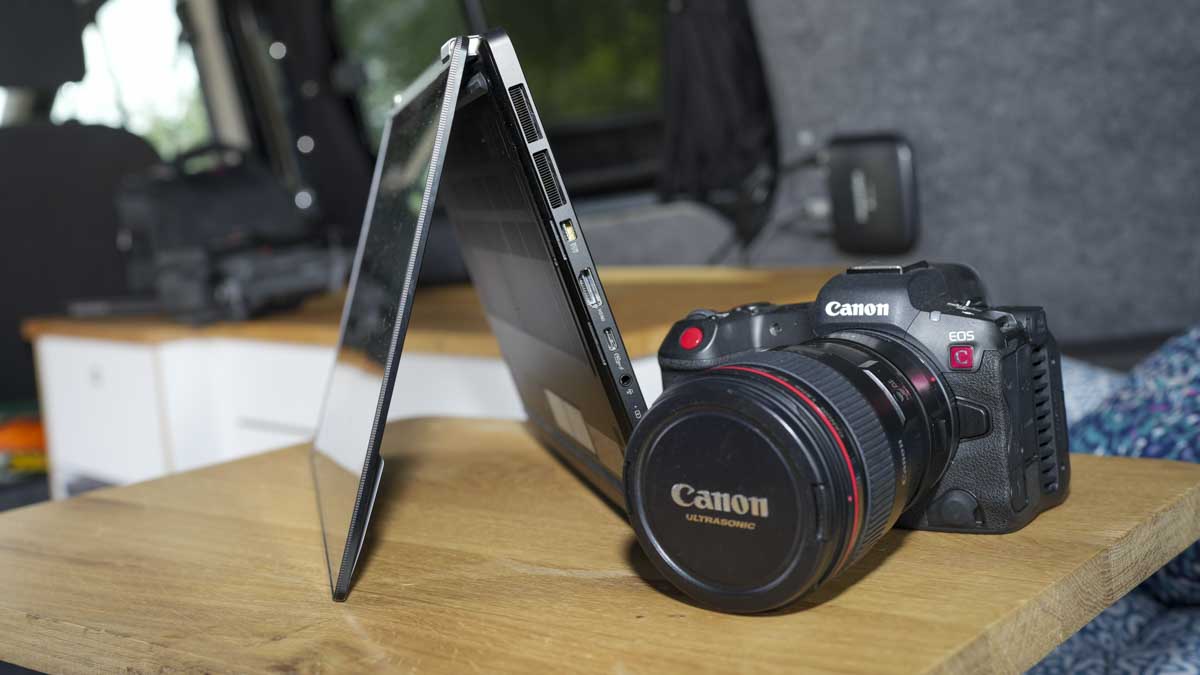
Specifications
Reasons to buy
Reasons to avoid
✅ You want a versatile 2-in-1 laptop: The Asus ProArt PX13 offers great flexibility, allowing you to switch between laptop and tablet modes for a variety of tasks.
✅ You need a convertible laptop with a dedicated GPU: Most two-in-one devices only come with integrated graphics, which isn't ideal for engineering students - but this machine is one of the few exceptions.
❌ You’re looking for a budget laptop: The ProArt PX13 may feel a little expensive for its size, making it less suitable for those on a tight budget.
❌ You need a larger screen: One of the compromises of this 2-in-1 is the screen, which is 13.3in. Good for portability, but not if you want a bigger display.
Effectively designed for creative professionals, the Asus ProArt PX13 is one of the few 2-in-1 laptops with a dedicated GPU rather an integrated graphics, so it's a good choice for engineering students looking for a little more versatility without compromising on graphical performance.
On the design side, we found the laptop's build quality was exceptional, while remaining slim and compact - which is what you want from a 2-in-1 that flips between laptop and tablet mode. Despite its size, it still packs in an AMD Ryzen AI 9 HX 370 chip, and a Nvidia GeForce RTX 4060 or 4070 GPU, depending on your configuration. Connectivity is also good here, with all the ports you'll likely need for any engineering class, including two USB4 ports. Better yet, there's also a stylus with a 4096-pressure sensitivity, which felt very precise in our hands.
Performance proved great throughout our testing, whether we were running standard office software or 4K editing and grading. Even gaming was a smooth experience. So, on that score, you should have no issues using any standard engineering apps for modeling and rendering. Switching between tablet and laptop modes is a dream, it takes seconds and it's seamless, and I really like the fact that this comes with a full-sized keyboard and large trackpad, so again, no compromises there.
Where you will be making a compromise, however, is on the screen, which is 13.3in. It's crisp and vibrant, being an OLED, but for some engineering tasks, you may prefer a large display. For a super-portable 2-in-1 laptop with a discrete GPU, though, it feels like a fair trade, especially with these performance levels.
Read our full Asus ProArt PX13 review
Best 18in laptop for engineering students
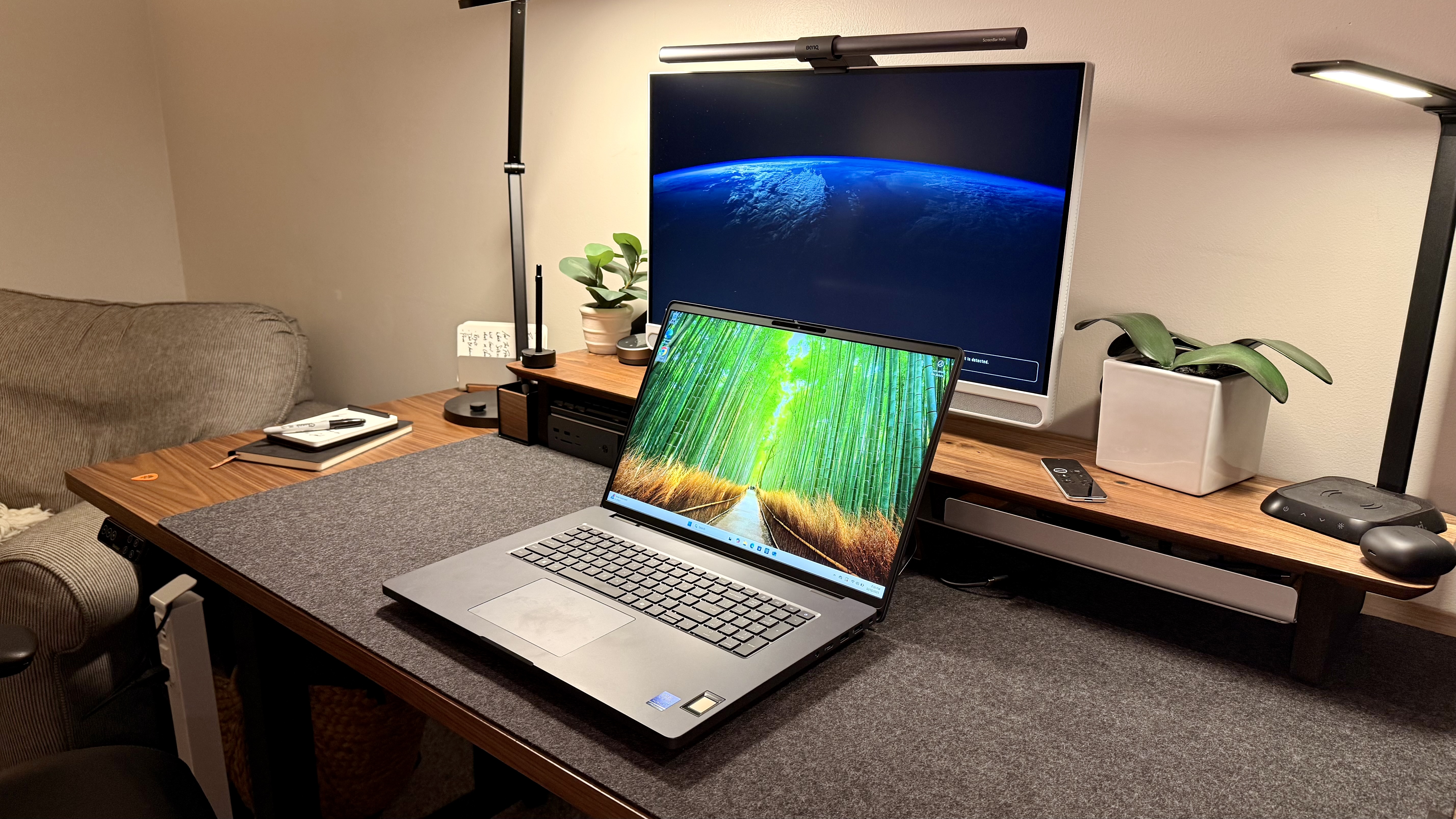
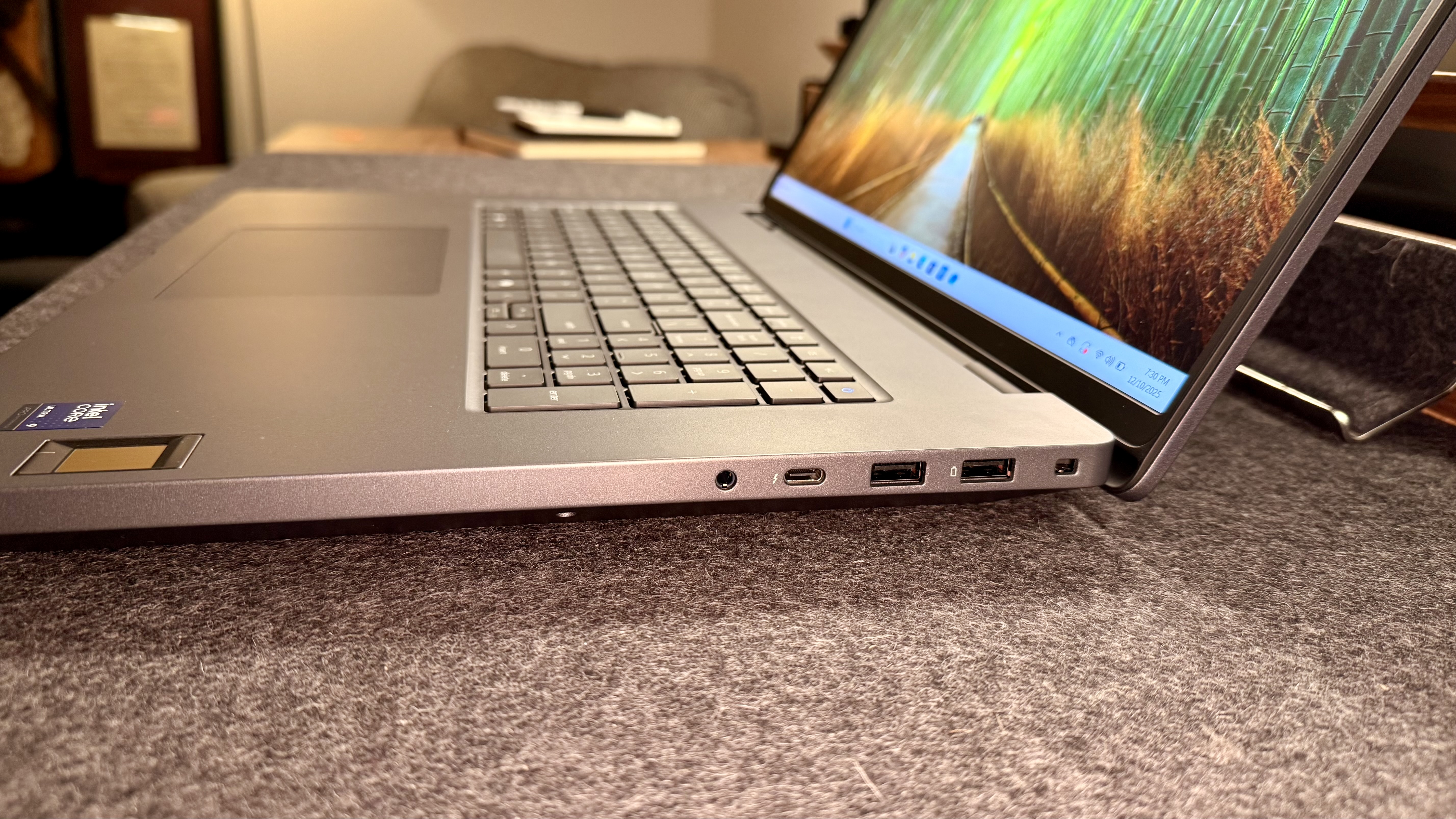
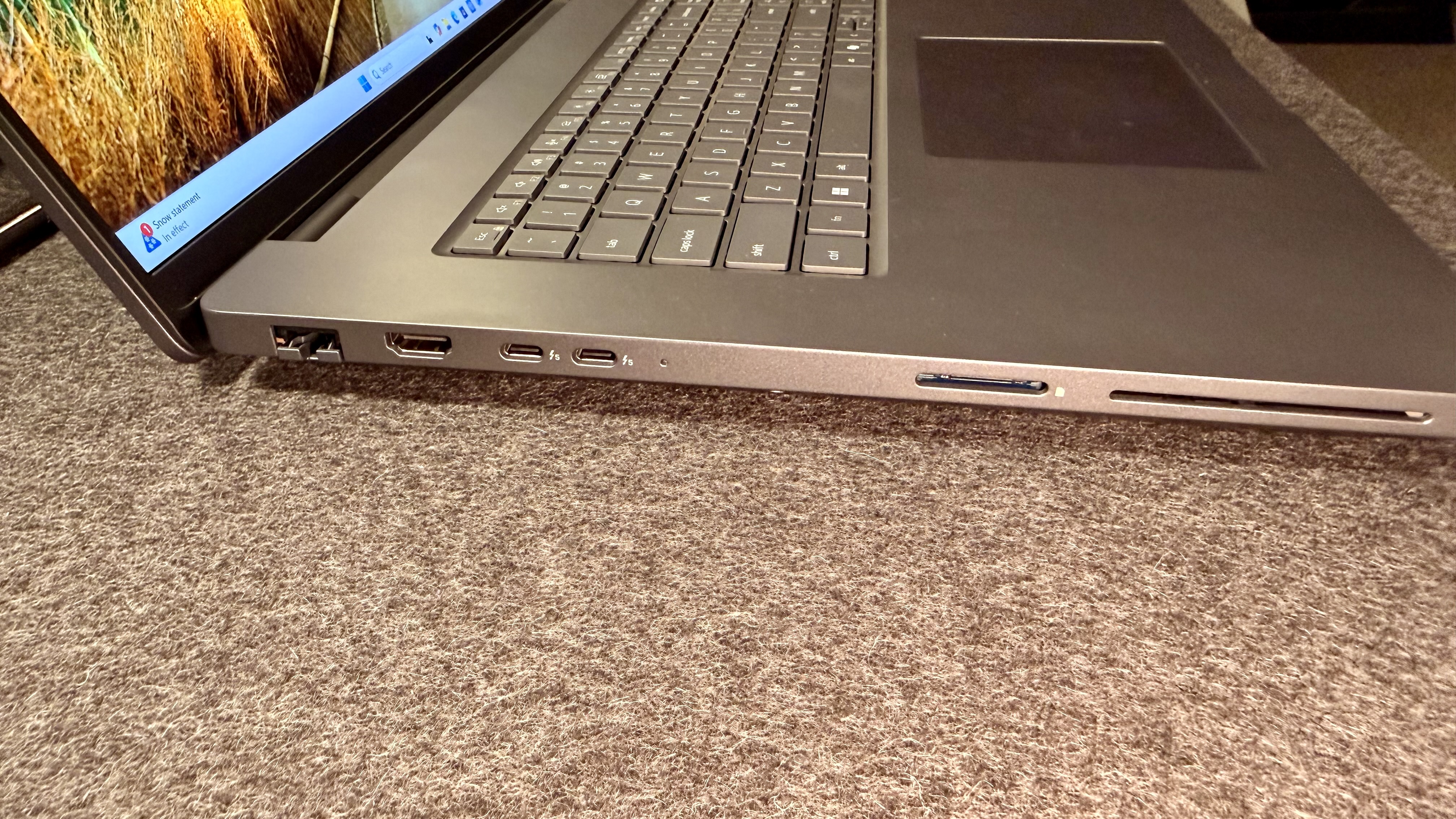
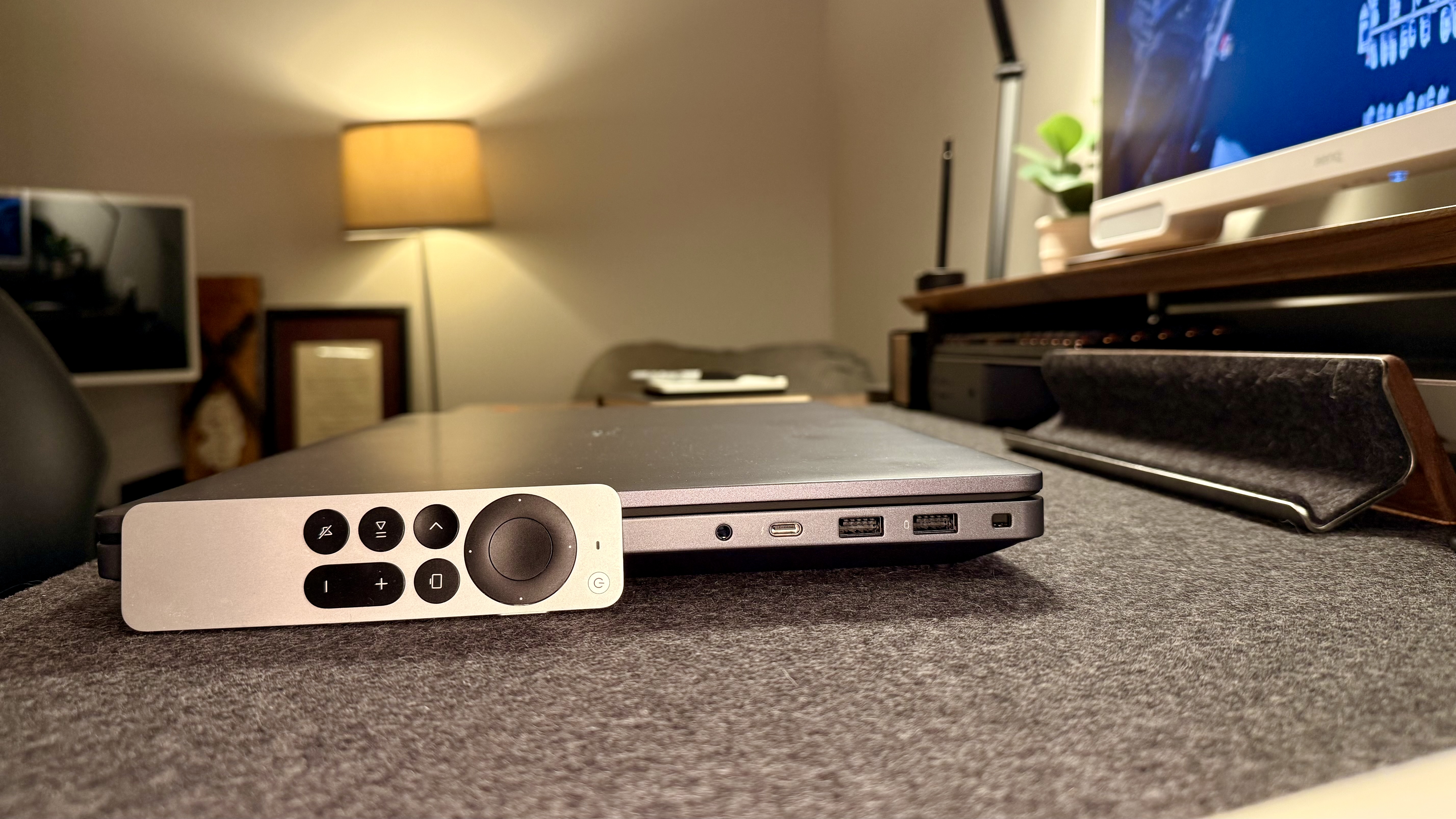
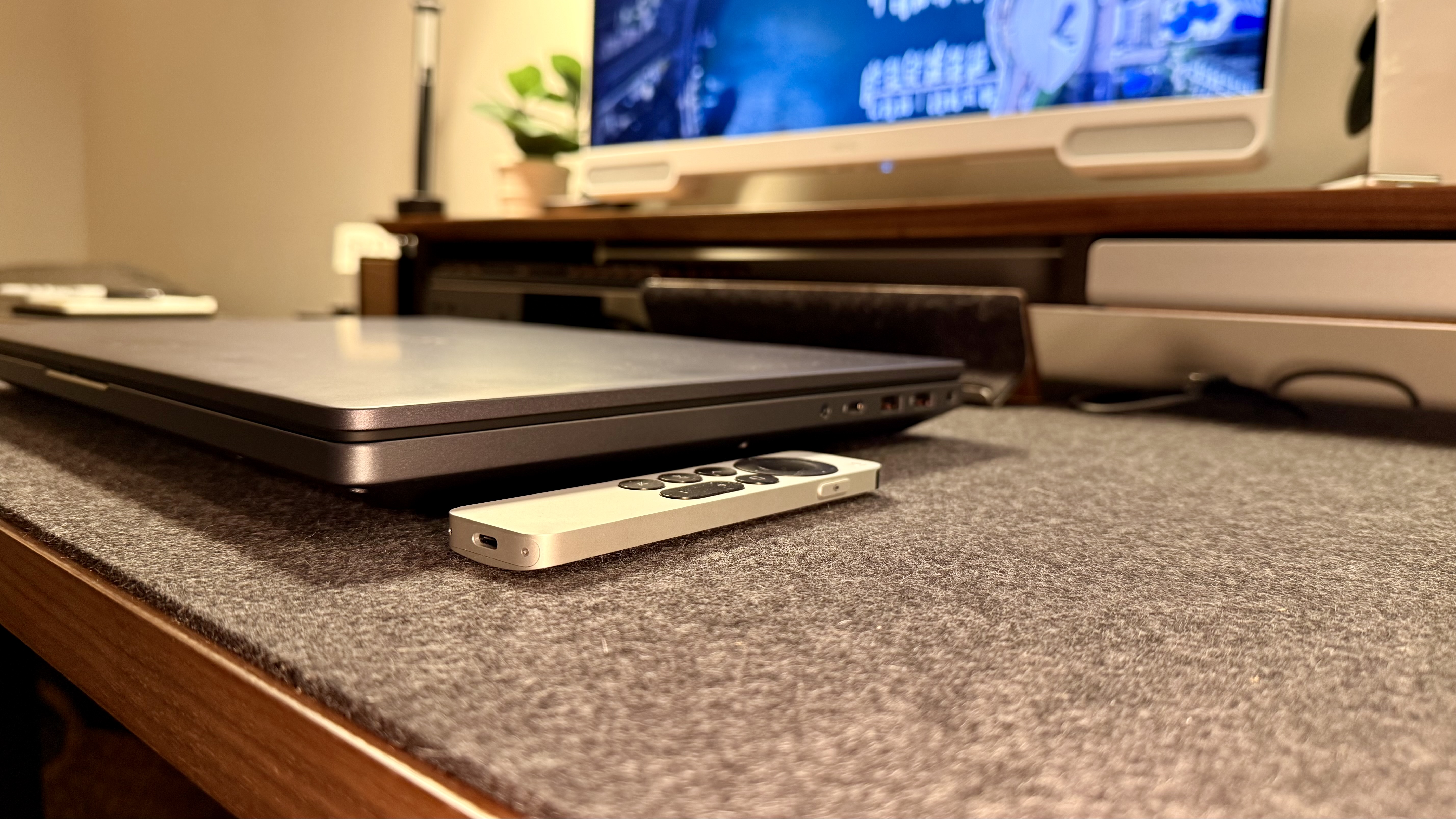
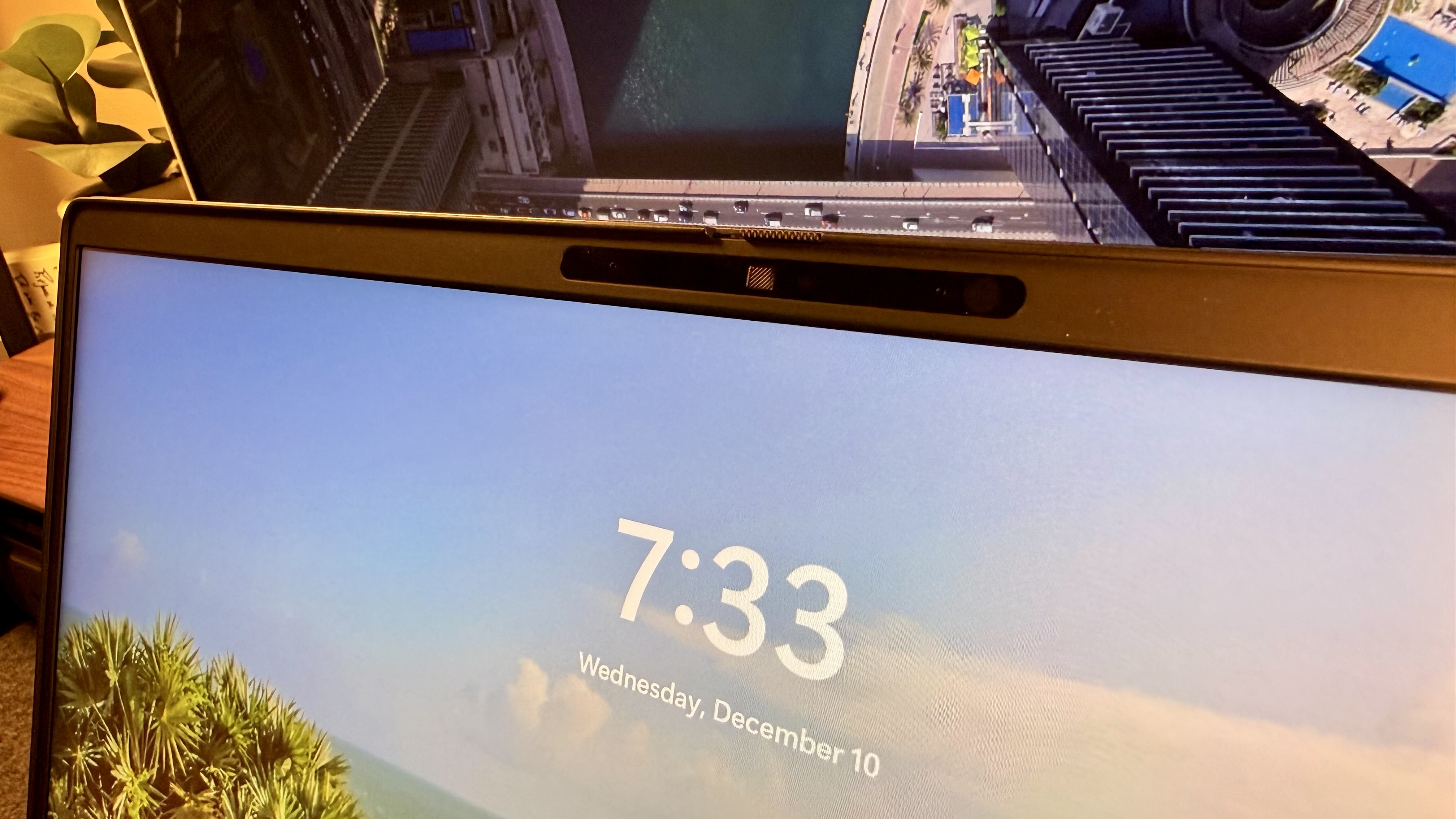
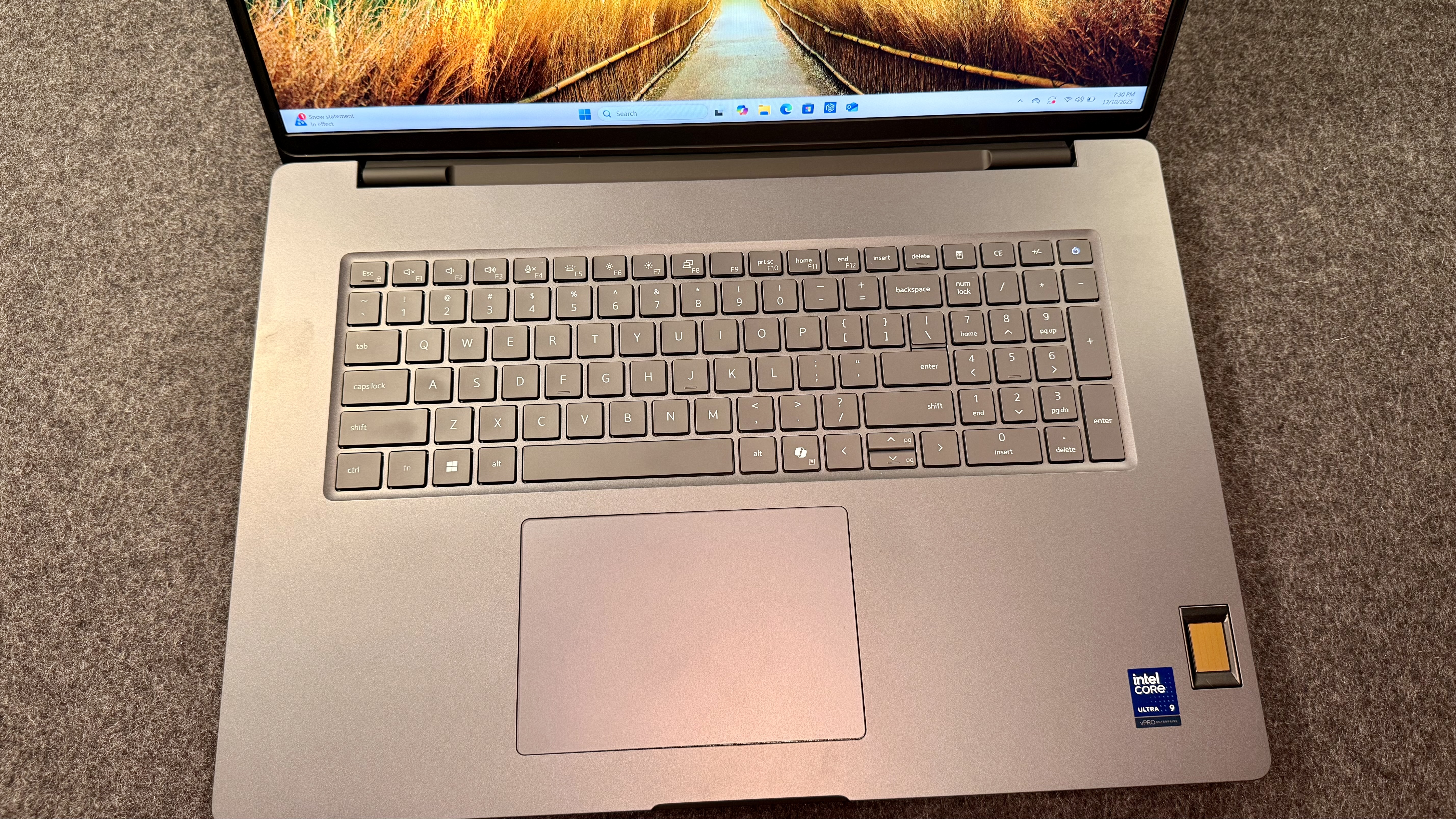
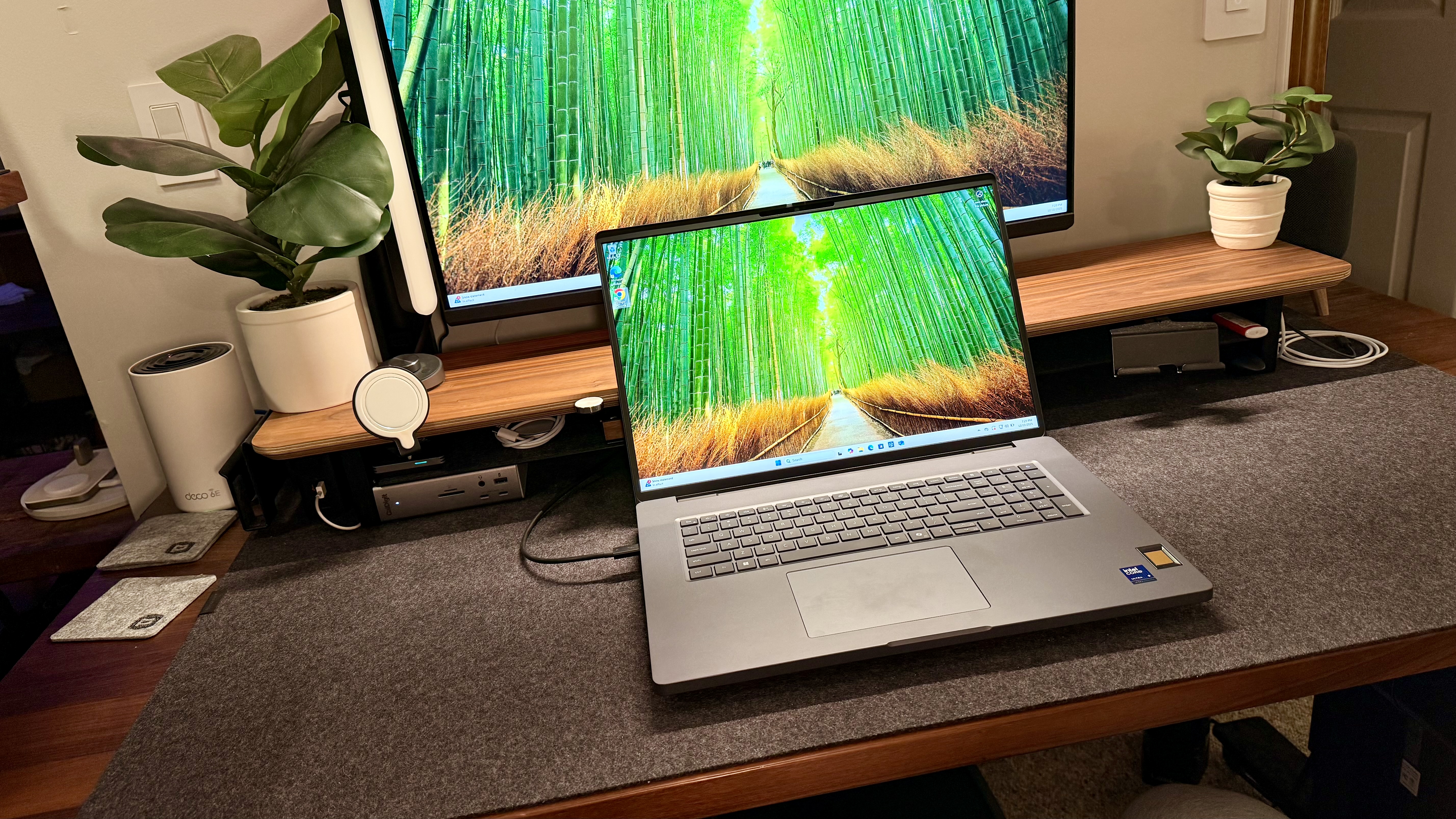
Specifications
Reasons to buy
Reasons to avoid
✅ You need one of the most powerful laptops we've ever tested: We still can't quite get over how powerful the Pro Max 18 Plus is, smashing through our tests with total ease.
✅ You want a large, stunning display: The 18-inch QHD+ display with 100% DCI-P3 and a 120Hz refresh rate that's ideal for smoothing out motion while 3D rendering.
❌ You are on a tight budget: This is one seriously expensive machine - but then, it's performance-driven and fully specced, so that's to be expected.
❌ You're working across multiple locations: Good grief, we found this laptop to be particularly heavy, with a starting weight of 7.17 lb (3.25kg).
This was the workstation we described as "the developer’s dream machine, the coder's crutch, and the engineer's engine" in our review. It's one of the most powerful machines we've ever tested, flying through a host of demanding workloads as easily as if we were making notes in Microsoft Notepad.
During our review, this laptop capably handled running large repos on GitHub, databases in DBeaver, projects in VS Code, and multiple other projects simultaneously. It never broke a sweat, with load times so fast, we barely had time to think.
Now, it is admittedly large, heavy, and cumbersome. So, I wouldn't recommend carting this one all over campus. And yes, it may be overkill for a first-year engineering course, but specced as it is (and priced as it is), it's more an investment to last well beyond your course and into your professional life.
But if high-performance with a beautiful big screen is what you want from a machine, there aren't many that come close to the Pro Max 18 Plus.
Read our full Dell Pro Max 18 Plus review
Best MacBook Pro alternative laptop for engineering students
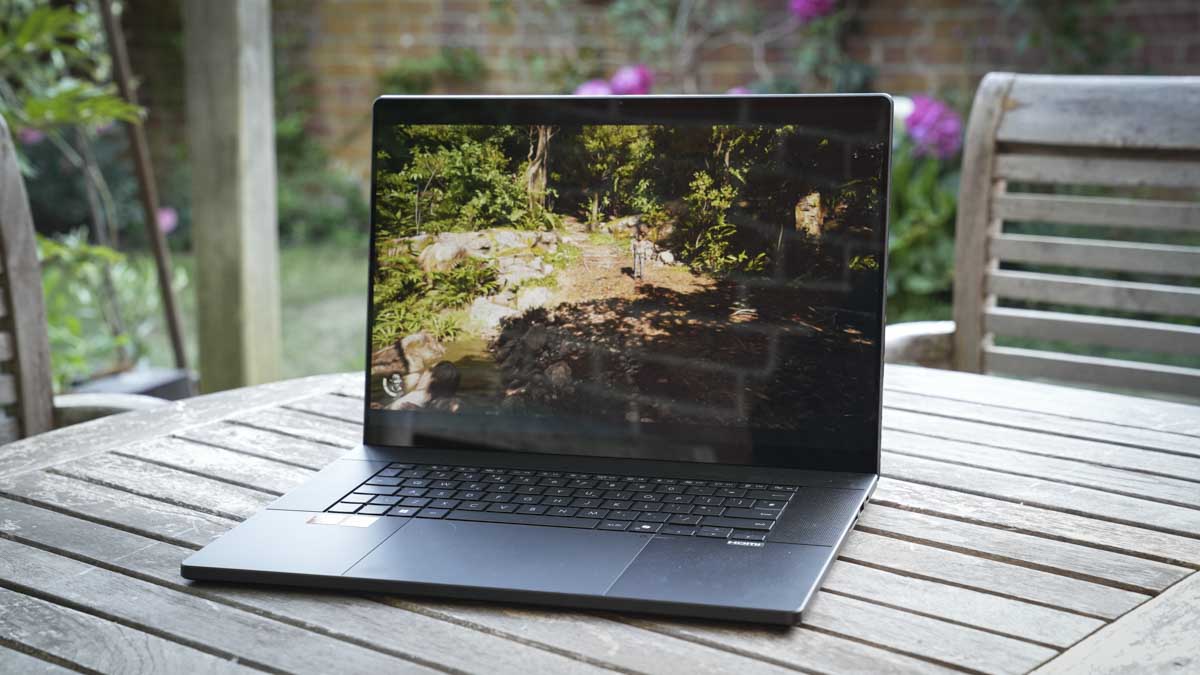
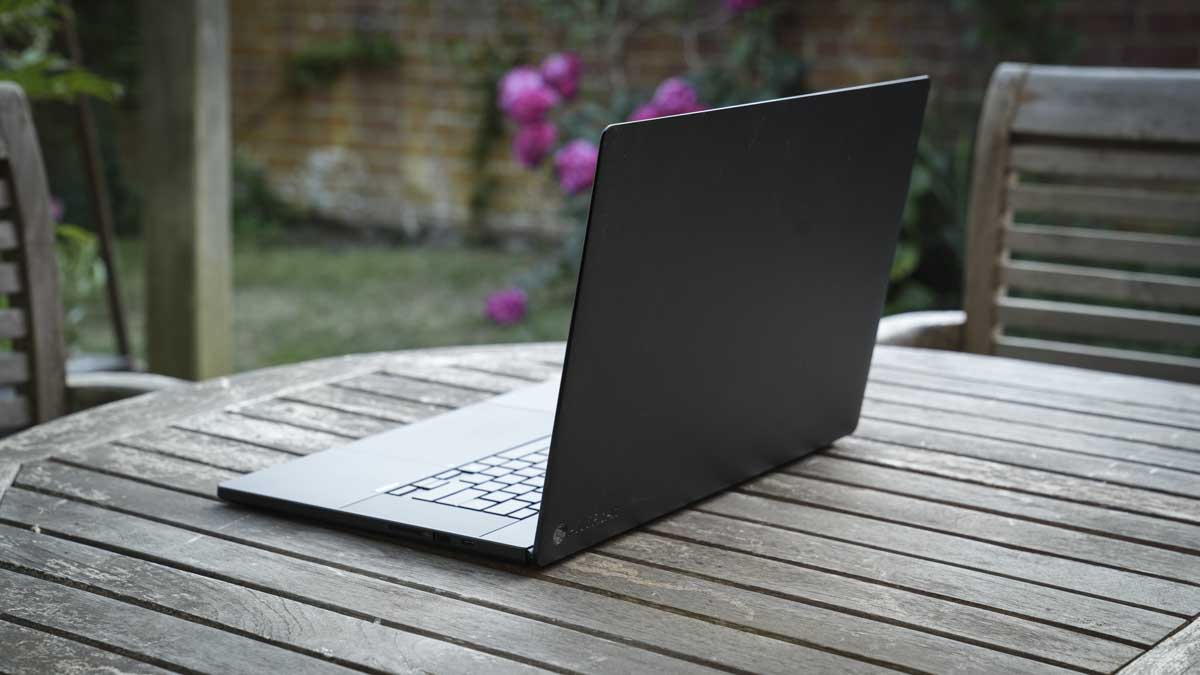
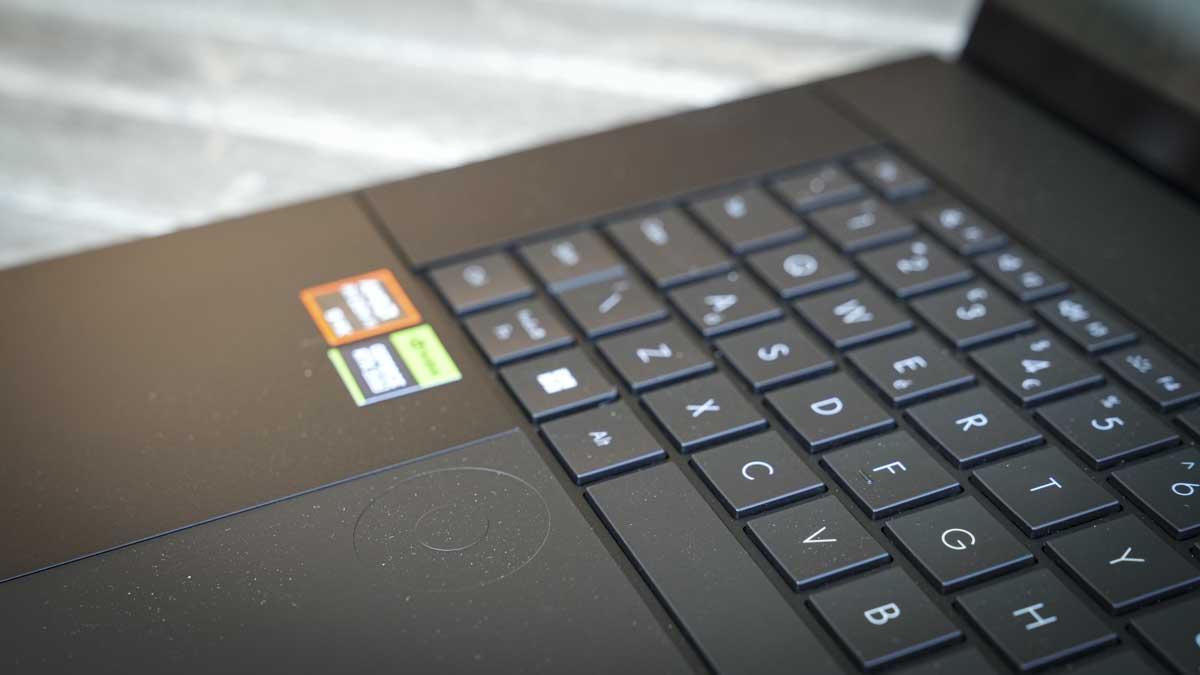
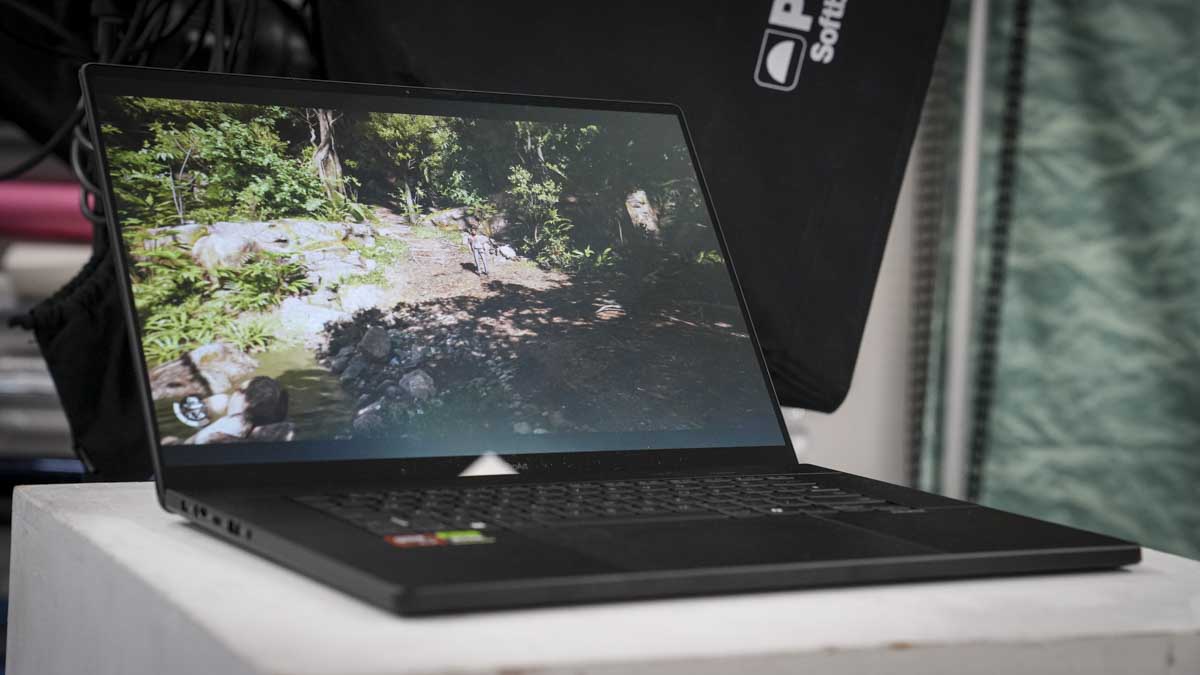
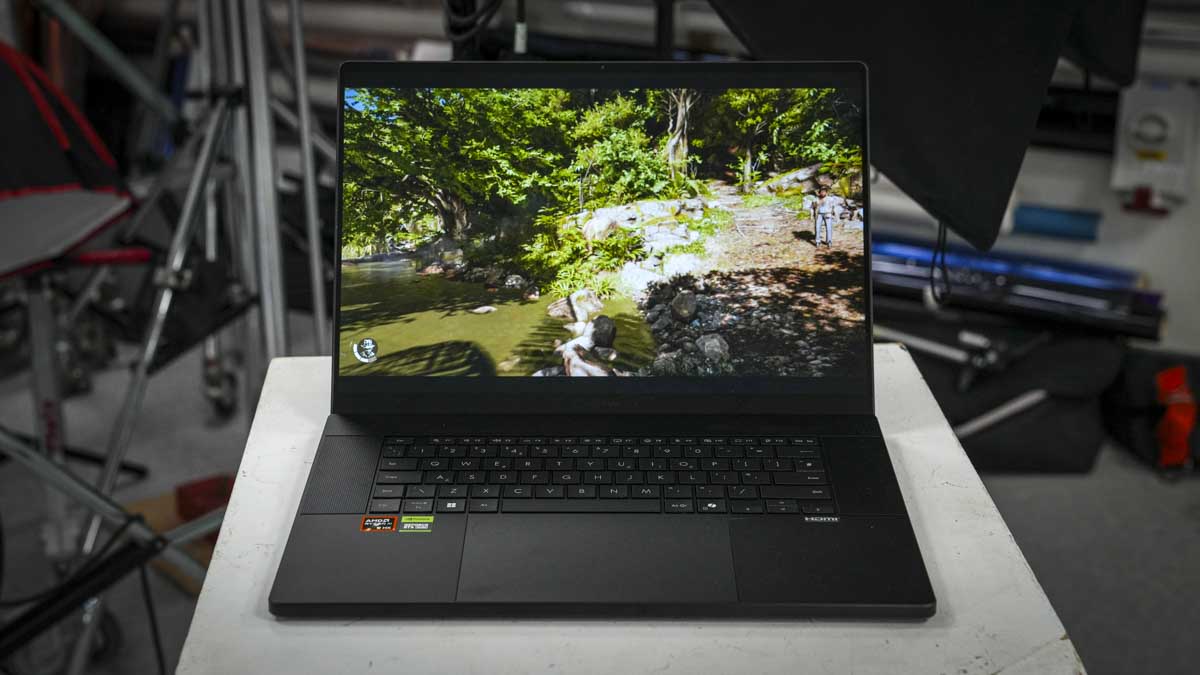
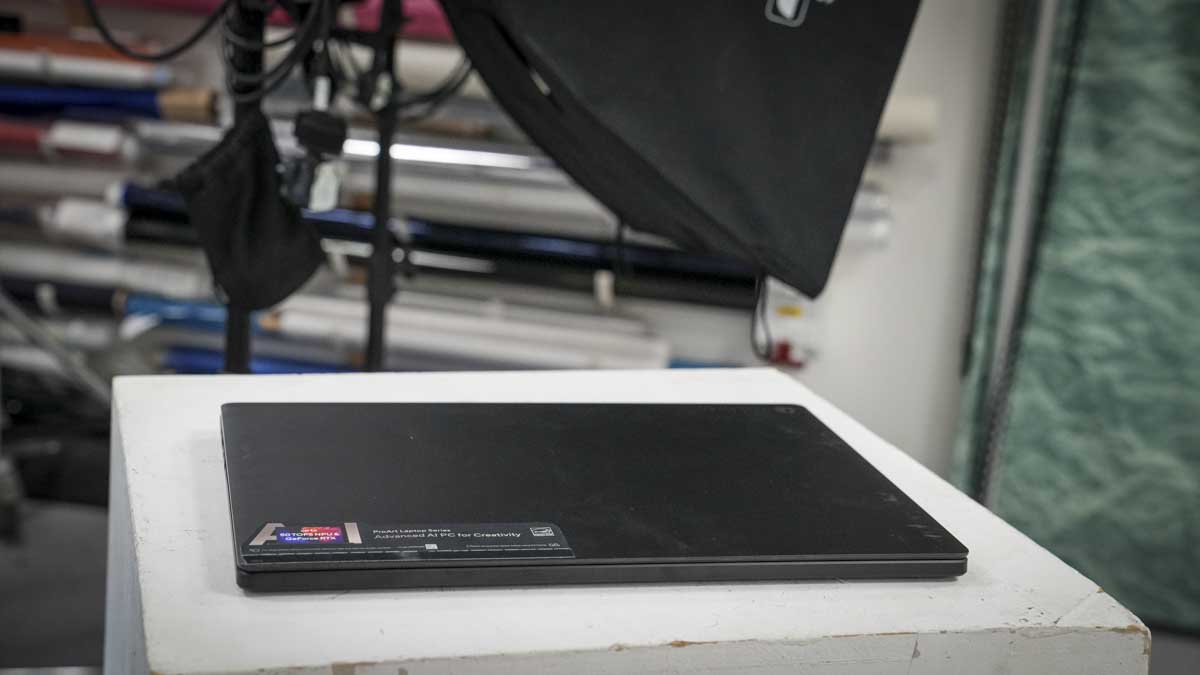
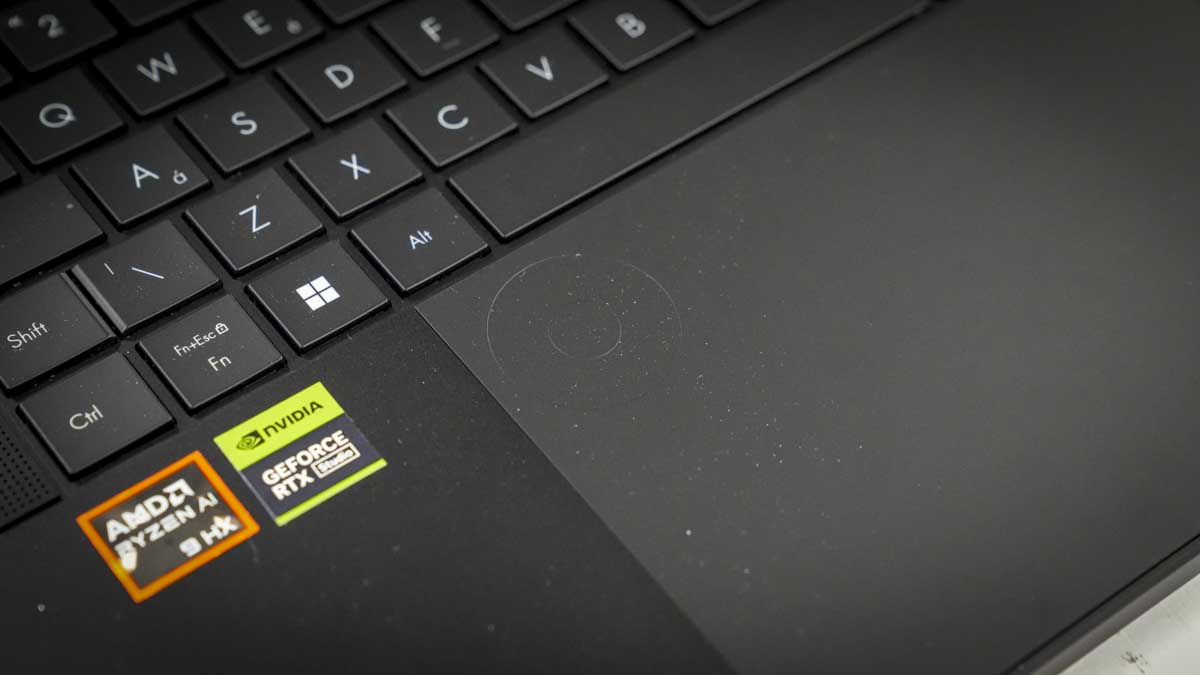
Specifications
Reasons to buy
Reasons to avoid
✅ You want a 4K screen: We found the 4K OLED screen here to be bright, vibrant, serving up plenty of detail. And while you may not need full color reproduction, it even boasts 100% DCI-P3 with Pantone validation.
✅ You want excellent performance: We loved how well the Asus ProArt P16 performed during tests, where it flew through a range of creative workloads without pause, making it an effective MacBook rival.
❌ You don’t need 4K: However gorgeous that screen is, it’s not technically a requirement for engineering courses, although the RTX 5070 config has a 3K screen.
❌ You want long battery life: As with most Windows laptops of this sort of spec, battery life isn’t the longest - and it’s one area where it fails to compete against the MacBook Pro. You’ll need the proprietary adapter to charge it up.
For us, the Asus ProArt P16 H7606 is a solid alternative to the MacBook Pro in a number of areas. Performance is one, with this laptop absolutely breezing through heavy-duty creative workloads like design and video editing.
What really stands out to me, however, is the 4K OLED display here (although the model with the RTX 5070 graphics caps out at 3K). If you’re looking for a vibrant, detailed screen on a laptop, then this is it. While a wide color gamut isn’t strictly necessary for engineering students, I’m happy to see 100% DCI-P3 with Pantone validation, making it ideal for other creative tasks like photo and video editing. I also like the fact that there’s touch capabilities here, with a 4096 pressure sensitivity and stylus included in the box.
Arguably, the weakest area here is the battery life - it gets absolutely eaten away when performing heavy-duty tasks such as 4K video editing. We clocked it at an hour and eighteen minutes during our editing tests. And you’ll need to use the proprietary charger to charge it. No using a USB-C in a pinch here.
Price isn’t exactly budget, but you’re getting a lot of laptop for the money here. Outside of upgraded graphics, there isn't a massive difference between this 2025 model and the previous ProArt P16, and both are very suitable for engineering courses.
Read our full Asus ProArt P16 H7606 review
Best laptops for engineering students compared
Model | Screen | CPU | GPU | RAM | Storage |
|---|---|---|---|---|---|
16in, 3.2K | Up to Intel Core Ultra 9 285HX | Up to Nvidia RTX PRO 5000 Blackwell | Up to 192GB | Up to 12TB | |
15.6-inch, FHD or QHD | Up to AMD Ryzen 7 8845HS / Intel Core i7-13650HX | Up to NVIDIA GeForce RTX 5070 / AMD Radeon RX 8700M | Up to 16GB | Up to 1TB | |
16in, 4K | Up to Intel Core Ultra 9 285HX | Up to Nvidia RTX PRO 3000 Blackwell | Up to 64GB | Up to 4TB | |
16in, 4K | Apple M4 Pro - M4 Max | Up to 40-core GPU | Up to 48GB | Up to 1TB | |
13.3in, 3K | AMD Ryzen AI 9 HX 370 | Nvidia GeForce RTX 4060 - 4070 | Up to 32GB | Up to 1TB | |
18in, 2.5K | Up to Intel Core Ultra 9 285HX | Up to Nvidia RTX PRO 3000 Blackwell | Up to 64GB | Up to 1TB | |
16in, 4K | AMD Ryzen AI 9 HX 370 | Nvidia GeForce RTX 4050 - 4070 | Up to 64GB | Up to 2TB |
Best laptops for engineering students: FAQs
What are the minimum laptop requirements for engineering students?
Laptops suitable for engineering students need to have that balance between processor performance and graphical prowess, particularly if you use CAD tools like Solidworks. However, the full specs will depend on which branch of engineering you're studying.
Here's what I'd look for as the absolute minimum specs when choosing a laptop for any engineering course. If your budget stretches to a higher-spec machine, I'd recommend it - especially if you want a more seamless experience.
Component | Minimum | Recommended | Best |
|---|---|---|---|
CPU | Intel Core i5-12500H / AMD Ryzen 5 7640HS | Intel Core i7-13620H / AMD Ryzen 7 7840HS | Intel Core i9-14900HX / AMD Ryzen 9 7945HX |
GPU | Nvidia GeForce RTX 3050 | Nvidia GeForce RTX 4050 or RTX 4060 | Nvidia GeForce RTX 4070 or above |
RAM | 16GB | 16GB | 32GB |
Storage | 512GB | 1TB | 1TB or above |
Display | 14in or 15.6in, 1920x1080 | 16in to 18in, 1920x1080 or 2560x1440 | 15.6in or 16in, 2560x1440 |
Are Apple laptops good for engineering students?
Are MacBooks good for engineering students?
Apple MacBooks have always been a solid competitor in the world of laptops for engineers. With the recent jump to Apple's own silicon with the M1 and M2 chips, these laptops have gotten even more efficient and even better at multitasking while also powering through even the largest of programs and tasks.
However, the issue is that many engineering programs, like those from Autodesk, will only work on the Windows operating system. If in doubt, ask your school or college which software you'll be using on your course.
If you do decide to buy an Apple MacBook Pro, check out our Apple promo codes to save money on your purchase.
Do engineering students need a powerful laptop?
Engineering students need a powerful laptop - although this need is balanced by the portability of the device and the type of software that's being run.
Using engineering programs pushes devices far harder than, say, the best laptops for writers. Even the best laptops for programming won't work as hard as laptops for engineering students.
Ultimately, a CAD or SolidWorks window pulls significantly more power than a text document or web search. As such, a dedicated GPU and plenty of RAM are key requirements. CPU is more dependent on the chosen software, but make sure the processor is the high-performance H-series or HX-series.
How to choose the best engineering laptop for you
When choosing the best laptop for an engineering student, there are a number of factors to consider.
A great laptop for engineering students must operate high-powered applications simultaneously with many open program windows - a CAD window, a large mapping service, and a large Excel sheet. Since you will likely be using complex programs like AutoCAD, MATLAB, and SolidWorks, you will need a laptop with sufficient power to run them smoothly and effectively.
Specs
For an uninterrupted workflow, look for laptops spec'd with the latest Intel Core i5 or Core i7 / AMD Ryzen 5 or 7 H-series chips, a minimum RTX 3050 GPU, 512GB SSD storage, and 16GB of RAM – although 32GB is even better. Scroll up to see my table for the minimum, recommended, and best component requirements.
Display
I recommend a 15.6in FHD display - although 14in is fine, and 16in -18in is preferred if you're using multiple windows. So long as the resolution is at least 1080p, you should be fine.
Battery life
Engineering projects are going to eat away at the battery, so try to get one that lasts as long as possible before needing a recharge. Nothing compares to the MacBook Pro in this regard. Laptops for engineering students tend to require proprietary chargers, so take that into consideration as it can affect portability.
Software requirements
If you know which software you'll be using in class, check the minimum requirements - then try to beat those specs, prioritizing RAM and GPU, as the performance will be much better. I've listed the spec requirements in the table above.
School requirements
It's worth asking your school, college, or university if they have preferred machine, or minimum hardware specifications. In many instances, the engineering software you use will be restricted to a particular operating system - usually Windows - so it's best to get that information before committing.
How we test the best laptops for engineering students
✅ More than 1,800 laptops, Chromebooks, and MacBooks reviewed
✅ 15 years of product testing
✅ Over 16,000 products reviewed in total
✅ Nearly 200,000 hours testing tech
Our team of reviewers have tested hundreds of the best laptops to find the top-rated for students. We take the same rigorous approach to our review process whether we’re reviewing the best laptops for MBA students, comparing the specs of the best laptops for computer science students, or benchmarking the performances of the best laptops for architecture students.
Design, dimensions & durability
After unboxing, our testing panel starts by assessing the overall size and design of each laptop. For the best engineering laptops for students, we're looking for good portability (or as good as can be for a component-laden machine built for heavy workloads), with a robust build quality that can withstand a busy commute, crossing campus, and from dorms to libraries to labs.
Spec comparison
Before we even begin full performance testing, we compare specs - it gives us an idea of what to expect and how it will likely perform against the competition. If a laptop fails to meet the minimum requirements as shown in the table above, it's an immediate disqualification for the guide.
Benchmarking
As part of every review process, we run simulated benchmarking tests using industry-standard tools like 3D Mark and CineBench. After that, we conduct real-world performance tests, recording performance in a series of tasks that we'd expect it to be used in, such as running heavy compute tasks or playing resource-intensive gaming titles. We compare this to benchmarking results to see if simulations bear out. This gives us a clear idea of how well it runs day-to-day.
Battery life
We undertake a full battery life test to see how well it measures up to a manufacturer’s generous claims - because being able to work on the move is essential here. This is a standardized test, running a FHD movie with aeroplane mode switched on and brightness set to 50%. We'll also record battery life under a range general use, like browsing and streaming, and heavy use like gaming.
Ports & connectivity
We also assess connectivity and port selection and placement. Modern laptops for engineering students should, at minimum, include USB-A or USB-C, but the more they have they better it is. In an ideal world, this would include a standard charging port, but given that these laptops demand an excessive amount of power, we often find they have a proprietary charger.
Price & value
Once the testing team has compared every spec, tried every feature, and explored performance for a range of tasks, we can then decide whether the price offers good value for money, and how it measures up against others at a similar price-point. At the budget end, we're not looking for the cheapest laptops possible, but those that offer long-term value for a reasonable cost, to make sure any investment you make is worth your money.
You can find out more in our detailed guide How we test laptops and desktops: our reviewing process explained.
Sign up to the TechRadar Pro newsletter to get all the top news, opinion, features and guidance your business needs to succeed!

Steve is B2B Editor for Creative & Hardware at TechRadar Pro, helping business professionals equip their workspace with the right tools. He tests and reviews the software, hardware, and office furniture that modern workspaces depend on, cutting through the hype to zero in on the real-world performance you won't find on a spec sheet. He is a relentless champion of the Oxford comma.